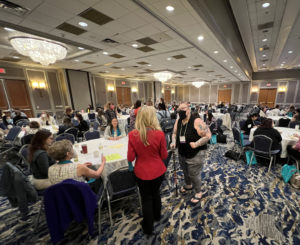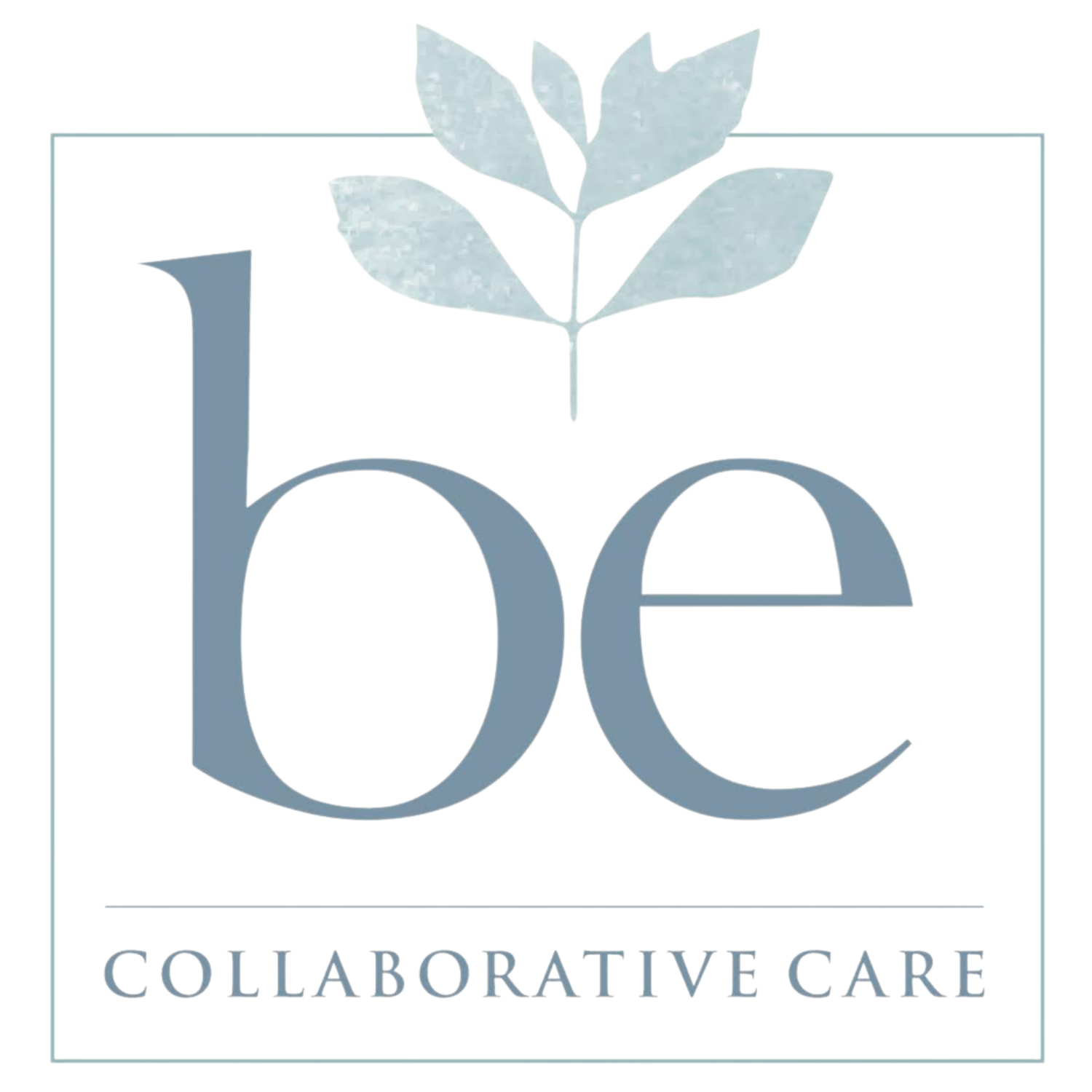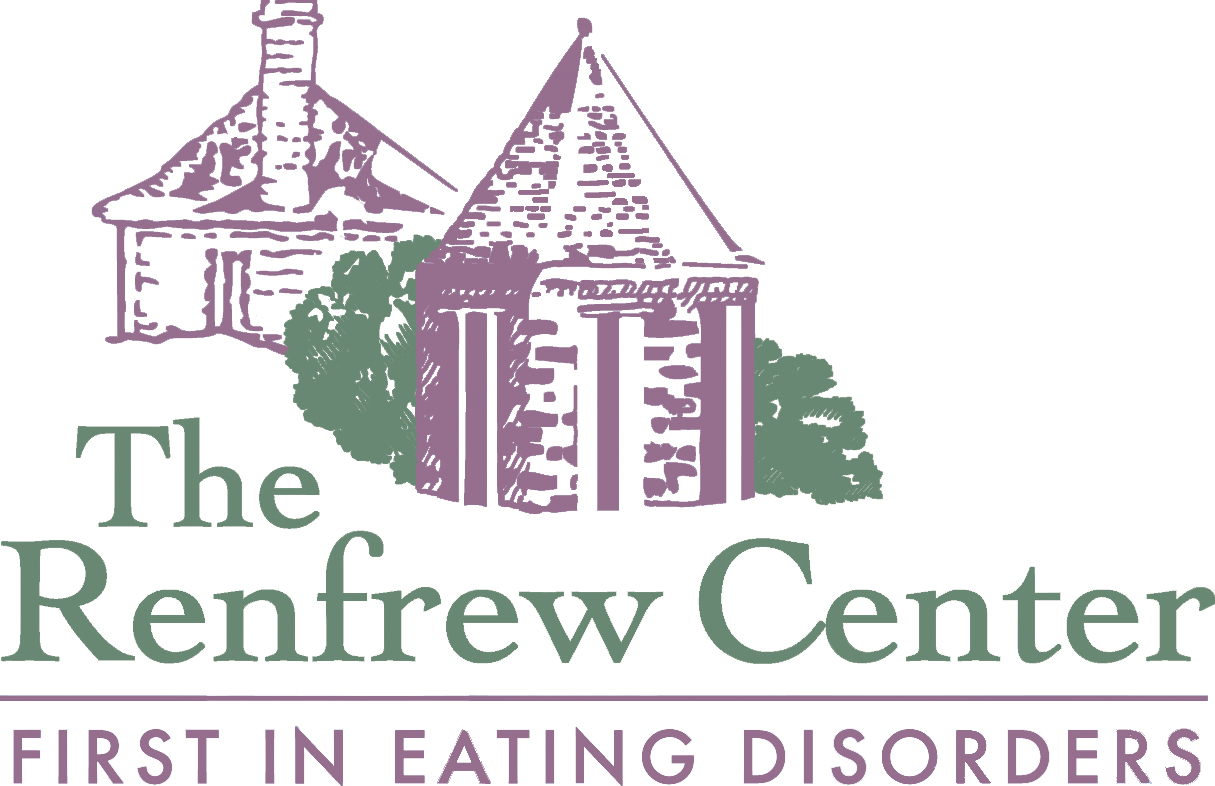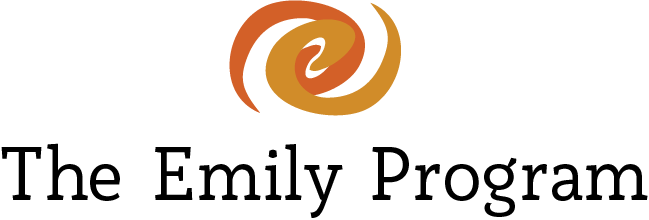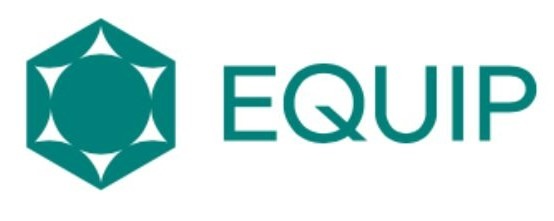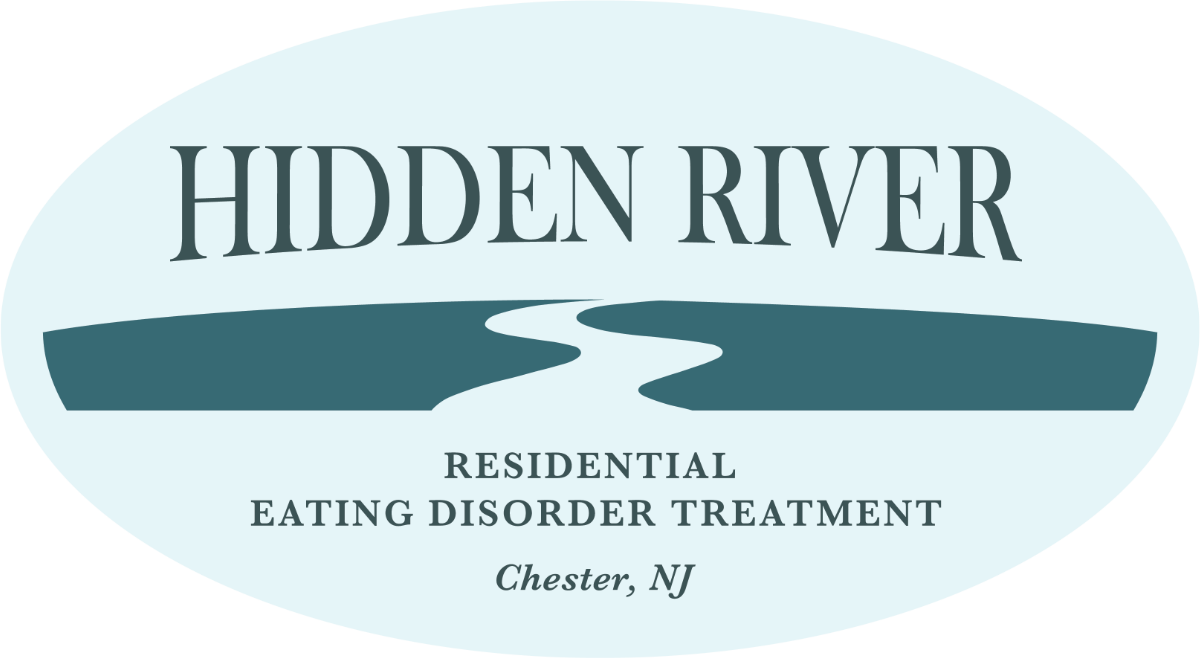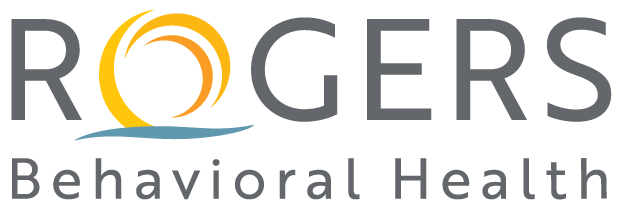Hotel Accommodations
NEW LOCATION THIS YEAR Sheraton Framingham Hotel & Conference Center: 1657 Worcester Road Framingham, MA 01701
Contact us at conference@medainc.org with any questions.
| Types | Single Day | Both Days |
|---|---|---|
| Early Bird Registration (Ends March 28, 2025 at Midnight) | Thursday: $300 (6.5 CE)
Friday: $300 (6.5 CE) | $500 (13 CE) |
| Normal Registration (Available Through NOON ET April 30, 2025) | Thursday: $350 (6.5 CE)
Friday: $350 (6.5 CE) | $560 (13 CE) |
| Day of Rates | Thursday: $375 (6.5 CE)
Friday: $375 (6.5 CE) | $575 (13 CE) |
| Full Time Students | $175 | $300 |
Scholarships & Discounts
- Current MEDA Professional Members will be sent information on registration to receive their discount.
- Scholarships have been made available for BIPOC attendees through the MEDA Memorial Scholarship Fund. Interested, please email us at conference@medainc.org
- Some additional scholarships are available. Contact us at conference@medainc.org
Continuing Education
Continuing Education Information
Continuing Education Credit Hours:
Single-day (Thursday) registration: 6.5 continuing education credits.
Single-day (Friday) registration: 6.5 continuing education credits.
Full Conference (two-day registration): 13 continuing education credits
Please note: It is the participant’s responsibility to check with their individual state boards to verify CE requirements for their state.
Joint Accreditation Statement
In support of improving patient care, this activity has been planned and implemented by Amedco LLC and Multi-Service Eating Disorders Association INC. Amedco LLC is jointly accredited by the Accreditation Council for Continuing Medical Education (ACCME), the Accreditation Council for Pharmacy Education (ACPE), and the American Nurses Credentialing Center (ANCC), to provide continuing education for the healthcare team.
Amedco Joint Accreditation Provider Number: 4008163 Professions in scope for this activity are listed below.
Physicians:
Amedco LLC designates this live activity for a maximum of 13.00 AMA PRA Category 1 Credits TM for physicians. Physicians should claim only the credit commensurate with the extent of their participation in the activity.
Nurses:
Amedco LLC designates this activity for a maximum of 13.00 ANCC contact hours.
Psychologists:
This course is co-sponsored by Amedco and Multi-Service Eating Disorders Association INC. Amedco is approved by the American Psychological Association to sponsor continuing education for psychologists. Amedco maintains responsibility for this program and content. Maximum of 13.00 hours.
– The following state boards accept courses from APA providers for Counselors: AK, AR, AZ, CA, CO, CT, DC, DE, FL, GA, HI, IA, ID, IL, IN, KS, KY, MD, ME, MO, NC, ND, NH, NE, NJ, NM, NV, OK*, OR, PA, RI, SC, SD, TN, TX, UT, VA, WI, WY
– MI: No CE requirements.
*OK: Accepts APA credit for live, in-person activities but not for ethics and/or online courses.
– The following state boards accept courses from APA providers for MFTs: AK, AR, AZ, CA, CO, CT, DE, FL, GA, IA, ID, IN, KS, MD, ME, MO, NE, NC, NH, NJ, NM, NV, OK*, OR, PA, RI, SC, SD, TN, TX, UT, VA, WA, WDC, WI, WY
– AL MFTs: Credits authorized by NBCC or any other state licensing agency will be accepted.
– MA MFTs: Participants can self-submit courses not approved by the MAMFT board for review.
– The following state boards accept courses from APA providers for Addictions Professionals: AK, AR, CO, CT, DC, DE, GA, IA, IN, KS, LA, MD, MO, MT, NC, ND, NE, NJ, NM, NY (held outside NY ONLY), OK*, OR, SC, UT, WA, WI, WY
– The following state boards accept courses from APA providers for Social Workers: AK, AR, AZ, CA, CO, DE, FL, GA, ID, IN, KY, ME, MN, MO, NE, NH, NM, OR, PA, VT, WI, WY
Mental Health Counselors:
See Pyschologists above or Social Workers below
Social Workers:
As a Jointly Accredited OrganizationAmedco is approved to offer social work continuing education by the Association of Social Work Boards (ASWB) Approved Continuing Education (ACE) program. Organizations, not individual courses, are approved under this program. State and provincial regulatory boards have the final authority to determine whether an individual course may be accepted for continuing education credit. Amedco maintains responsibility for this course. Social workers
completing this course receive up to 13.00 continuing education credits.
The following state boards accept courses offering ASWB ACE credit for Social Workers: AK, AL, AR, AZ, CA, CO, CT, DC, DE, FL, GA, HI, ID, IL, IN, IA, KS, KY, LA, ME, MD, MA, MI, MN, MS, MO, MT, NC, ND, NE, NH, NM, NV, OH, OK*, OR, PA, RI, SC, SD, TN, TX, UT, VT, VA, WA, WI, WV*, WY
*OK: Accepts ASWB ACE for live, in-person activities but not for ethics and/or online courses.
*WV: Accepts ASWB ACE unless activity is held live in West Virginia.
The following state boards accept courses offering ASWB ACE credit for Counselors: AK, AR, AZ, CA, CO, CT, DC, FL, GA, IA, ID, IL, IN, KS, MA, MD, ME, MO, ND, NE, NM, NH, NV, OK*, OR, PA, TN, TX, UT, VA, WI, WY
MI: No CE requirement
The following state boards accept courses offering ASWB ACE credit for MFTs: AK, AR, AZ, CA, CO, FL, IA, ID, IN, KS, MD, ME, MO, NC, NE, NH, NM, NV, OK*, OR, PA, RI, TN, TX, UT, VA, WI, WY
AL MFTs: Credits authorized by NBCC or any other state licensing agency will be accepted.
MA MFTs: Participants can self-submit courses not approved by the MAMFT board for review.
MI: No CE requirement.
The following state boards accept ASWB ACE credit for Addictions Professionals: AK, CA, CO, CT, GA, IA, IN, KS, LA, MO, MT, ND, NM, NV, OK, OR, SC, WA, WI, WV, WY
Dietitians
Amedco LLC designates this activity for a maximum of 13.00 CPEU.
Conference Learning Objectives
Conference Objectives
At the end of the program participants will be able to:
- Gain actionable insights and ideas to deepen their understanding of the complexities of eating disorders.
- Develop the ability to apply new knowledge and strategies to treat and heal eating disorders.
- Enhance critical thinking skills by engaging with multiple, diverse perspectives to treat and heal eating disorders.
PLEASE NOTE: Session specific learning objectives and be found by going to the Conference Schedule and clicking on the Session Titles.
Schedule: Thursday, May 1, 2025
Registration & Breakfast
Welcome
Keynote

Sand Chang PhD (They/Them)
Sand Chang, PhD (they/them) is a Chinese American queer nonbinary psychologist based in California who works at the intersection of trans health, eating disorders, trauma recovery, and body liberation. They are a Trainer with the IFS Institute, a Body Trust provider, and a Somatic Experiencing Practitioner (SEP). Dr. Chang is the co-author of A Clinician’s Guide to Gender Affirming Care and the upcoming workbook All Parts Welcome: The Queer and Trans Internal Family Systems Workbook. Outside of work, they enjoy spending time with their smoosh-faced dogs and competing in pun-offs.
Inside Out: Witnessing Ourselves and Reclaiming Embodiment as Pathways Toward Collective Liberation
This presentation will explore the ways that doing one’s own reflection and healing work increases the capacity to contribute to collective liberation in an embodied way. We will explore the concept of self-witnessing and self-alignment, as well as barriers that can inhibit effective work with others. The facilitator will weave in concepts from Internal Family Systems and how they may apply to health care providers.
Learning Objectives
- Participants will be able to name two external systems that inhibit embodied growth work.
- Participants will be able to name how the concept of a polarization may be experienced both internally and in the external world.
- Participants will be able to practice two strategies for greater self-attunement and embodiment.
Refreshment Break
Session 1
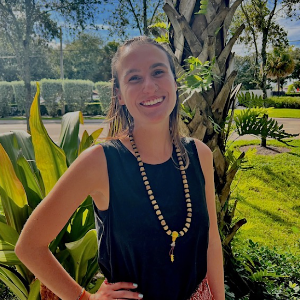
Kat Rinaldi MS (She/Her)
Kat Rinaldi is a student researcher in the third year of a Clinical Psychology PhD program. She hopes to use clinical, research, and lived experience to help bridge scientist-practitioner gaps in the eating disorders field by making outcomes research more accessible to clinicians and clients. Kat is especially committed to sharing how both anti-fat bias and eating disorder fears can be addressed with the evidence-based principles of exposure therapy. She is grateful that she can ground her research and work in peer support for LGBTQ+ individuals in recovery

Molly Robbins MS (She/Her)
Molly Robbins is an advocate and researcher who is working towards her PhD in clinical psychology, studying the intersection of anti-fat bias and eating disorders, at Nova Southeastern University. She bridges her lived experience of both the harms of weight stigma and triumphs of recovery with her professional experience and research interests. She has worked in treatment centers at multiple levels of care for several years, running relapse prevention, arts, and body liberation groups, analyzing outcome data, and working as a yoga instructor.
“Feeling Fat”: Weight Liberation and Exposure Therapy Across the Size Spectrum
What are we getting wrong about treating fears of fatness? We will share the experience of “feeling fat” in both a thin body and a fat body to illustrate how the misconception of fatness as a cognitive distortion that requires correction can impede eating disorder recovery for clients of all sizes. This presentation interweaves lived experience and empirical research to present a rationale for exposure-based approaches to body dissatisfaction that are both clinically effective and size-inclusive. Through applying our research in exposure therapy and weight liberation to interactive demonstrations, we hope to introduce stigma-informed interventions that can effectively challenge fears and anti-fat biases (for both clients and clinicians!). Attendees will leave equipped with actionable strategies to foster a weight-liberated therapeutic environment that empowers clients to embrace their bodies, their values, and their recovery process.
Learning Objectives
- Participants will be able to describe how “feeling fat” and fear of fatness manifest in clients across the size spectrum.
- Participants will be able to discuss the ways current approaches to reducing “feeling fat” and fear of fat may unintentionally normalize stigma and/or impede recovery efforts by reinforcing fear.
- Participants will be able to envisage and practice approaches to addressing fear of fatness that reflect both principles of exposure therapy and principles of body liberation.
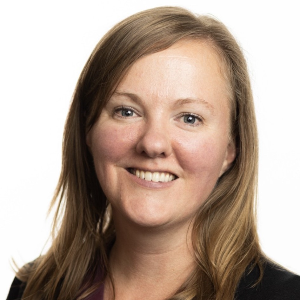
Meg Salvia PhD, RDN, CEDS-S (She/Her)
Meg Salvia, PhD, RDN is a Clinical Assistant Professor in the Health Sciences Department at Boston University. She has also been a dietitian for 12 years with a group private practice specializing in nutrition counseling for eating disorder recovery as well as diabetes, including co-occurring diagnoses. She completed her dietetics training and internship at Boston University and recently completed a PhD in Population Health Sciences with concentrations in Nutritional Epidemiology and Population Mental Health at Harvard University. Her current research focuses on cardiometabolic diseases, eating disorders, and eating behavior patterns in adolescents and young adults.
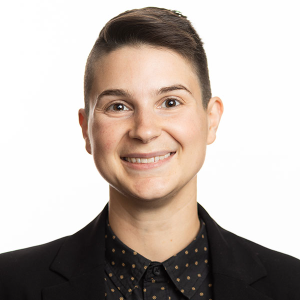
Shannon Peters PhD (She/They)
Shannon Peters is a licensed psychologist and a Clinical Assistant Professor at Boston University. Their teaching is informed by feminist theory, liberation psychology, and critical psychology. Their clinical interests include LGBTQ+ mental health, transgender affirming healthcare, and emerging adulthood. Their research aims to challenge dominant assumptions that pathologize non-normative experiences and medicalize responses to oppression in order to promote inclusive physical and mental health care and foster resilient communities.
A Boor or A Burden? A Collaborative, and Interdisciplinary Session Exploring Lessons Learned and Best Practices for Delivering Virtual Eating Disorder Care
This session includes the presentation of original research findings as well as an interactive, collaborative group discussion component. We will summarize up-to-date findings from research regarding patients’ and participants’ experiences with virtual eating disorder treatment as well as present novel results from a study exploring LGBTQ+ patients’ participation in virtual treatment settings; we explore data from one community with barriers to care and barriers to community development to ascertain relevant lessons that apply more broadly. Presenters will then facilitate small-group discussions on focused questions with the goal of generating provider insights, processing our collective lived experiences, and collaboratively co-creating knowledge to inform and improve patient care and counseling strategies in virtual settings.
Learning Objectives
- Participants will be able to identify current research on eating disorder treatment in virtual-care settings.
- Participants will be able to discuss how populations with diverse and distinct needs (such as neurodiverse individuals engaging in eating disorder treatment) may have unique needs with respect to virtual care settings.
- Participants will be able to collaborate to identify how emerging research paired with personal insights can improve adaptation of eating disorder care for telehealth.

Mallary Tenore Tarpley MFA (She/Her)
Mallary Tenore Tarpley is a journalism and writing professor at the University of Texas at Austin’s Moody College of Communication and McCombs School of Business. Her writing has appeared in The New York Times, The Washington Post, Los Angeles Times, and The Dallas Morning News, among other publications. She has lived experience with anorexia and has written a book, “Slip: Life in the Middle of Eating Disorder Recovery,” to be published in August 2025.
Inclusive Healing: Exploring the “Middle Place” of Eating Disorder Recovery
This presentation will explore recovery through a new framework that I call “Middle Place” — the liminal space between acute sickness and full recovery from an eating disorder. For my forthcoming book, “Slip,” I surveyed 716 people from forty-four states and thirty-seven countries about their experiences in the middle place. I also conducted more than 170 interviews with folks who have lived experience, as well as eating disorder clinicians and researchers. My presentation will draw from this data by looking at why it’s important to not only acknowledge the grey spaces of recovery but t remove the stigma and shame around slips (hence why my book is titled “Slip”). The Middle Place is a space where slips happen but progress is always possible, and it welcomes healing in all its forms.
Learning Objectives
- Participants will be able to adopt a new framework for thinking about eating disorder recovery — one that acknowledges the grey space between acute sickness and full recovery.
- Participants will be able to use strategies for embracing healing in all its forms, recognizing that recovery is an ongoing work in progress rather than a final destination.
- Participants will be able to communicate more inclusive and expansive language for talking about recovery with patients and in clinical circles.
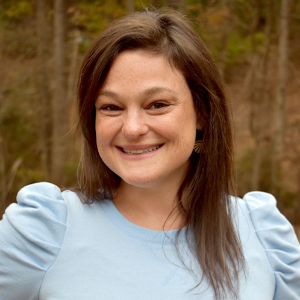
Annie Goldsmith RD, LDN, AP-ERED (She/Her)
Annie’s practice is rooted in a foundational belief in the inherent worthiness of all bodies. She centers weight inclusive, social justice oriented, and trauma informed frameworks in her approach to eating disorder care and recovery. Annie became interested in somatically and polyvagal-informed approaches to nutrition therapy in 2018 when she began training with the Embodied Recovery Institute, where she now provides training as part of the faculty. Annie has presented on the intersection of eating disorders and dissociation at the ISSTD World Conference, as well as the Healing Together conference. Annie is passionate about working with clients from a “bottom up” approach, centering and supporting the wisdom of the body and its innate capacity for healing.
When Food Doesn’t Nourish: Considerations for Attachment Based, Somatically Oriented, and Trauma Informed Care
In this presentation, Annie will present an overview of the Embodied Recovery for Eating Disorders framework and why a somatically-informed approach is essential for ED care. Additionally, she will explore the idea of “diet culture as perpetrator” – looking at fatphobia and healthism through the lenses of complex trauma and attachment injury, and how they create barriers to healing.
Learning Objectives
- Participants will be able to describe the 4 principles of the Embodied Recovery framework and how they represent a paradigm shift from traditional approaches to ED care.
- Participants will be able to explain the connections between safety, attachment, autonomic nervous system regulation, and normative eating.
- Participants will learn to identify 3 levels of organization in which fatphobia shows up, and describe how this can result in disorganized attachment and dissociation..
Lunch
Session 2

Taralyn Johnson MSN, FNP-C (She/Her)
Taralyn Johnson is a family nurse practitioner with over eight years of experience treating the physical complications of eating disorders. She is the attending provider for the adult RTC unit at the Center for Change, a behavioral health hospital that specializes in eating disorders. She is passionate about keeping her patients safe, making eating disorder treatment as comfortable as possible, and educating her patients and their families about the physical consequences of eating disorder behaviors.
Refeeding Syndrome and Pseudo-Bartter Syndrome: Avoiding Dangers and Pitfalls in Eating Disorder Treatment
This presentation explores refeeding syndrome, pseudo-Bartter syndrome, and other physical complications of the weight restoration process. Case studies will walk participants through simple pathophysiology, risk factors, monitoring parameters, and treatment options. Strategies for interventions will be tailored to healthcare providers, therapists, and dietitians, though other disciplines may benefit as well.
Learning Objectives
- Participants will be able to identify risk factors, symptoms, and treatment strategies for refeeding syndrome.
- Participants will be able to identify risk factors, symptoms, and treatment strategies for pseudo-Bartter syndrome.
- Participants will learn to recognize common physical complications of the weight restoration process.
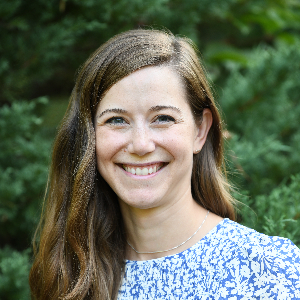
Lauren Sharifi MPH, RD, LDN (She/Her)
Lauren Sharifi is a Registered Dietitian Nutritionist with a virtual private practice specializing in Avoidant Restrictive Food Intake Disorder (ARFID). She offers both individual and group support for adults, teens, and caregivers navigating ARFID. Lauren is dedicated to expanding access to neurodivergent-affirming resources and care for those with ARFID.
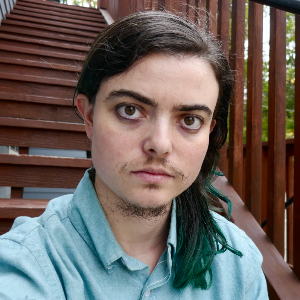
Sam Sharpe PhD (They/Them)
Sam is a transgender and intersex peer support worker, researcher, and educator. They are a team member at FEDUP Collective and a staff member with InterConnect, providing direct peer support services, social media content creation, and educational trainings on topics related to transgender and intersex health needs and experiences. Sam also has a PhD in Biology from Kansas State University where they are currently an instructor for the Department of Social Transformation Studies, and they were a 2023 ORISE Fellow with the Office of the Assistant Secretary for Health focusing on transgender and intersex health policy. They are passionate about science communication, empowering alternate approaches to care and healing, and uplifting the needs and experiences of transgender and intersex community members.
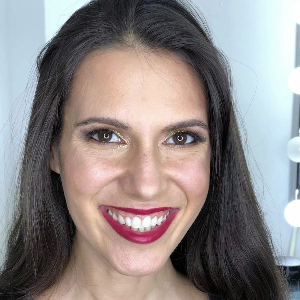
Jessica Mellow (She/Her)
Jessica Mellow (she/her) is an NYC based advocate and consultant. She is late diagnosed autistic and ADHD, and identifies as disabled. She is recovering from co-occurring ARFID and anorexia, CPTSD. Through her work as a bodypaint artist and model, she began to be more vocal about her own experience.
Supporting Individuals with ARFID: Neurodivergent-Affirming and Trauma-Informed Care & Communication
This presentation will explore the influence of neurodiversity and trauma on experiences and development of ARFID. Participants will learn neurodivergent-affirming and trauma-informed treatment approaches, communication strategies and tools to better support individuals with ARFID. Participants will also be able to discuss ways to implement affirming support and communication into their work with ARFID clients.
Learning Objectives
- Participants will be able to list 3 factors that influence the development of ARFID among those who are neurodivergent.
- Participants will be able to identify at least 3 ways to support ARFID clients to make eating more accessible.
- Participants will be able to question how internal biases may be showing up in one’s own communication, and explore ways to challenge these biases.

Diana Richards RDN, LDN (She/Her)
Diana Dugan Richards offers an invitation to recovery to clients with disordered eating using Internal Family Systems (IFS). She is skilled and experienced in the IFS therapeutic technique, conceptual framework, and practice, and utilizes it to heal internal ruptured relationships with food and body that have been fragmented by our culture. She offers individual and group IFS consultation to nutrition professionals.
Extending Compassion to Provider’s Parts – Using IFS to Heal Internalized Bias
Eating disorder providers witness clients expressing systemically derived core cultural beliefs and subsequent behaviors around food, weight, and body image. This may stimulate their own parts holding similar beliefs that can deactivate their ability to hold brave and therapeutic space. To be of authentic service, it’s essential to examine internalized implicit biases, weight stigma, and core assumptions to determine what prevents compassionate and non-judgmental space for clients and provider.
Participants will be encouraged to explore their internal system, visualizing how different parts interact and respond, both internally and externally, to burdens related to food, body image, and weight.
Learning Objectives
- Participants will be able to locate and observe internal attunement to parts that influence beliefs and behaviors.
- Participants will be able to map and systematize emotional connection to these behaviors.
- Participants will be able to facilitate the continued process of creating and maintaining compassionate relationships with their parts.
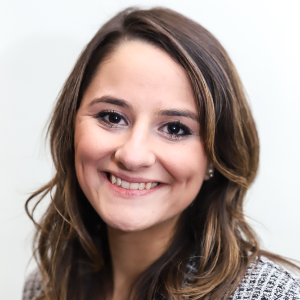
Angela Kaloudis LMHC, PMH-C (She/Her)
Angela Kaloudis, LMHC, PMH-C maintains a private practice physically located in New York but works with individuals located in Massachusetts, Vermont, and New York. She has a passion for treating individuals with eating disorders, trauma & trauma-related disorders, and birthing individuals with Perinatal Mood and Anxiety Disorders. Angela is a Certified Perinatal Mental Health Clinician trained in Somatic Experiencing (SE) and in EMDR with advanced trainings on dissociative disorders.
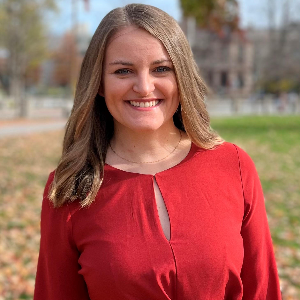
Lacey Vogel LMHC (She/Her)
Lacey Vogel, LMHC (she/her) is an eating disorder and trauma specialist, with over a decade of experience working with individuals suffering from eating disorders. She has worked at various levels of care, including residential, PHP, and IOP. Lacey has experience as an educator and supervisor, working as a training specialist at Renfrew for the last few years before transitioning full time to her private practice.
Feeling the Love: A Relational Approach to Healing in Connection
We know that human beings are born into this world to connect, and the autonomic nervous system is a relational system tuned to experience others. We also know that therapy should welcome all emotions, even the most misunderstood and controversial emotion in therapy: love. This presentation will cover the process of relational healing in the therapeutic relationship and in group dynamics, covering principles of Relational Cultural Therapy with individuals with eating disorders and trauma.
Learning Objectives
- Participants will be able to list 3-5 ways that eating disorders and trauma affect relational health and connection.
- Participants will be able to identify at least 2 ways that cycles of connection and disconnection play out in relationships as well as in a group setting.
- Participants will be able to describe 3 evidence-based RCT interventions.
Refreshment Break
Session 3
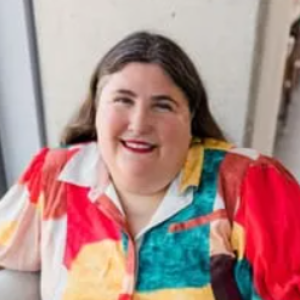
Rachel Millner PsyD, CEDS-S, CBTP (She/Her)
Rachel Millner (she/her), Psy.D., CEDS-S, CBTP(R) is a psychologist and fat-activist in Philadelphia, PA. She utilizes a fat positive, health at every size(R) framework to support people in their healing from eating disorders, disordered eating and their relationship with food and body. Dr. Millner has appeared on many popular podcasts and publications such as Food Psych and the New York Times.
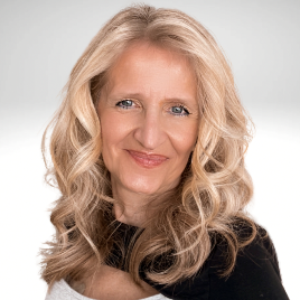
Monika Ostroff LICSW, CEDS-S (She/They)
Monika Ostroff, LICSW, CEDS-S is the Executive Director of the Multi-Service Eating Disorders Association, Inc (MEDA). Prior to leading MEDA, she directed several residential, partial hospital and intensive outpatient eating disorder programs in addition to having owned a thriving private practice. Monika is the co-author of Anorexia Nervosa: A Guide to Recovery and a contributing author to Self-Harm Behavior and Eating Disorders. With more than 25 years of experience in the field of eating disorders, Monika has presented at many national conferences, taught at the university level, and appeared on many media broadcasts, publications & podcasts. Practicing from a trauma informed, social justice and staunchly HAES® aligned lens, Monika is a dedicated ally and strong advocate working to ensure access to equitable, compassionate, and affirming care for all. Her passion for treating eating disorders and mentoring other professionals was borne out of her own struggle with severe and enduring anorexia nervosa and life experiences.
Eating Disorders Within Dissociative Identity Disorder Systems: How to Know & What to do
This session will provide clinicians with practical skills and strategies for working with clients diagnosed with Dissociative Identity Disorder (DID) and Eating Disorders. Attendees will learn how to identify DID as well as how to identify and build rapport with distinct internal parts of a DID system, navigate complex internal communication, and use system mapping techniques to enhance treatment in their clients with DID and EDs. Emphasis will be placed on understanding the dynamics within the dissociative system, including how to engage parts with different eating disorders, manage parts without bodies, and facilitate cooperation across the system. Participants will also explore strategies for maintaining therapeutic progress between sessions, including managing amnesia and fostering between-session communication. Using a combination of didactics, lived experience and case examples we will demonstrate how treatment can be adjusted to equip attendees to apply at least two skills specific to treating DID systems in their clinical practice with people who have eating disorders, with a focus on enhancing client outcomes and supporting long-term healing.
Learning Objectives
- Participants will be able to describe how to support clients with building internal communication.
- Participants will be able to identify three strategies for working with different parts.
- Participants will be able apply at least two skills specific to treating a Dissociative Identity Disorder (DID) system, including techniques for system mapping and fostering internal communication between parts, to enhance their clinical work and improve treatment outcomes for individuals with DID and EDs.

Robyn Kievit NP, RD, CEDS (She/Her)
Robyn has been a dedicated advocate for individuals struggling with eating disorders, combining her expertise as both a dietitian and nurse practitioner focused on psychopharmacology, being the first dietitian to transition into a nurse practitioner role. Robyn began her journey in private practice in 1994, balancing full time work in several other institutions until she fully committed to her practice in 2013. A strong advocate for women’s health, Robyn emphasizes the importance of holistic care for individuals with ovaries in midlife who have faced eating disorders. She believes in the necessity of integrating appropriate hormone therapy with psychopharmacology to foster recovery and healing. Outside of her professional life, Robyn is a proud mother to children aged 12 to 24 (bio and step) and shares her life with a wonderful partner, a dog, and two cats—her cherished therapy animals.

Christine Stockert RN (She/Her)
Chrissy Stockert is the Chief Health Officer at Within. Chrissy’s journey in healthcare started after a career as a teacher, and she still loves to bring education into the work she does every day. After becoming a nurse in 2010, and working in various specialities, she found her passion, and has dedicated the past 12 years to specializing in the field of eating disorders. She feels honored every day to work in this field and with this population. Guiding individuals towards recovery is both her mission and privilege.
Beyond her professional endeavors, she is a proud mother of two wonderful children. She loves to go to their school plays and cheer at their soccer games! When she’s not chasing around her little ones, you can probably find her baking, reading, walking, or – yes, she’s a nerd at heart – doing a crossword puzzle!
Changing Bodies, Changing Minds: How Pharmacological and Holistic Intervention of Perimenopause and Menopause Helps Heal Eating Disorders
50% of the population will go through perimenopause and menopause in their midlife. Individuals who also have long term eating disorders, disordered eating, and body image struggles are often under treated specifically in midlife while experiencing perimenopause and menopause. While shifts in nourishment, movement and psychopharmacology are integral parts of treatment, these individuals also often need further hormone and menopausal replacement therapy to feel any semblance of better and or recovered. A thoughtful discussion of caring for this population inclusive of various methods will be reviewed with case studies and recommended plans of care.
Learning Objectives
- Participants will be able to identify when an individual with ovaries is in perimenopause or menopause and when to augment treatment inclusive of hormone replacement therapy or menopausal replacement therapy as part of eating disorder, disordered eating and body image treatment.
- Participants will be able to incorporate nourishment and movement recommendations for perimenopausal and menopausal individuals with eating disorders, disordered eating and body image struggles.
- Participants will be able to differentiate and incorporate treatment with hormone therapy and psychopharmacology together for perimenopausal/menopausal individuals diagnosed with new eating disorders or those with longer term diagnosis in midlife.
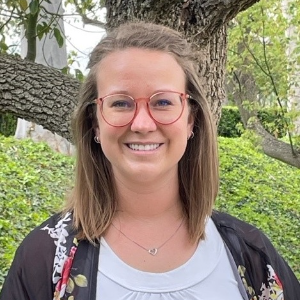
Alison Beckman MS, RD, LD, CEDS-C (She/Her)
As Alsana’s Director of Clinical Nutrition & Movement Services, Alison Beckman is responsible for training dietitians in alignment with Alsana’s Adaptive Care Model and helping to maintain the quality and consistency of Alsana’s nutrition and movement programs. She joined Alsana as a dietitian in 2017 and has been helping clients heal their relationships with food and their bodies ever since. Ali has extensive training in the treatment of Avoidant and Restrictive Food Intake Disorder (ARFID), diabetes, and Embodied Recovery, and she is also a Certified Intuitive Eating Counselor with the credentials MS, RD, LD, CEDS-C.
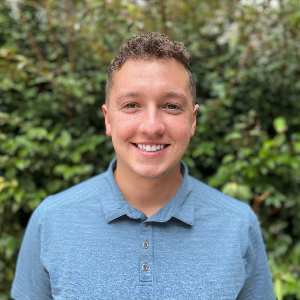
Blake Romanini RN, MSN, MBA (He/Him)
Blake Romanini is the National Nursing Director at Alsana, where he leads nursing teams across multiple locations to deliver high-quality care for clients with eating disorders. With a focus on collaboration and staff development, he works to integrate nursing and direct care roles to enhance client outcomes. Blake is committed to fostering a culture of growth and accountability, navigating challenges, and guiding his teams through change while maintaining operational stability across the organization.
Adapting to Diabetes: Navigating Carbs, Insulin, and Eating Disorder Recovery
This presentation examines the complex relationship between diabetes management and eating disorders. Healthcare professionals face unique challenges in treating Eating Disorder-Diabetes Mellitus (ED-DM), making it essential to understand the various aspects of this condition for effective care. We will discuss the intricacies of managing carbohydrates and insulin therapy during recovery, highlighting the psychological and physiological obstacles clients encounter.
Using two insightful case studies, we will showcase the effectiveness of Alsana’s Adaptive Care Model, which promotes a holistic and interdisciplinary approach to treatment. Participants will learn how to enhance collaboration among healthcare providers, ensuring that treatment goals are cohesive and tailored to each client’s recovery journey. By providing practitioners with tangible strategies to address ED-DM, this presentation aims to establish a standard of care that prioritizes both physical health and emotional well-being. Join us to discover practical ways to support clients in overcoming their unique challenges and achieve meaningful recovery in this critical context.
Learning Objectives
- Participants will be able to outline the relationship between diabetes and eating disorders. Define diabulimia through the lens of the Diagnostic and Statistical Manual of Mental Disorders, Fifth Edition (DSM-V).
- Participants will be able to identify the risk factors, symptoms, and health complications of diabulimia.
- Participants will be able to review interventions for diabulimia from each dimension of the Adaptive Care Model, including nutrition, therapy, medical, movement, relational dimensions.
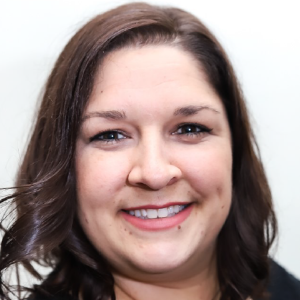
Laura McLain PsyD, BC-TMH (She/Her)
Laura McLain (she/her), PsyD, BC-TMH, is the Director of Training for The Renfrew Center. Dr. McLain has a decade of experience treating eating disorders with special interest in college students, clients in midlife, co-occurring substance use, understanding and applying research to clinical practice, and managing safety concerns. In addition to her role at Renfrew, she works in private practice providing clinical supervision and serving individuals suffering with eating disorders, substance use disorders, and trauma. Dr. McLain is an active member of the American Psychological Association (APA), the International Association of Eating Disorders Professionals (iaedp), is a member of the Psychology Interjurisdictional Compact (PSYPACT), and is a Board Certified Telemental Heath Provider.

Adrienne Kerrigan M.Ed, PCC (She/Her)
Adrienne Kerrigan (she/her), M.Ed, PCC, is the Site Director, Renfrew @ Home Northeast. Prior to joining The Renfrew Center she worked as a Professional Certified Coach and as an eating disorder provider in the Boston area for 16 years. Adrienne has experience working in residential settings and in private practice providing support services for clients and families in various stages of the recovery process. Adrienne has been a speaker at professional conferences regarding the advocacy for collaboration among treatment providers, eating disorder education in schools, and the effectiveness of adjunct support services within an interdisciplinary team approach to the treatment of eating disorders.
I’m Uncomfortable: Using the Self as a Therapeutic Tool in Exposure Work with Eating Disorders
This interactive presentation will encourage participants to explore their beliefs about exposure work with eating disorders and confront misconceptions. This workshop will review the basic principles of exposure therapy and various ways it is used in eating disorder treatment, such as individual, group and meal support therapy. Emphasis will be placed on provider avoidance in exposure work, how that impacts the therapeutic relationship and the benefits of tolerating our own discomfort. This presentation will engage participants in self-exploration of how to effectively use exposure therapy with eating disorder clients, while encouraging self-reflection regarding our own blind spots in this difficult but important work.
Learning Objectives
- Participants will be able to describe 2 principles of exposure work when working with eating disorders.
- Participants will be able to identify 2 physical sensations that indicate their emotional avoidance when conducting exposure activities with clients.
- Participants will be able to identify 3 tools to incorporate in their practice when supporting individuals with eating disorders.
Refreshment Break
Session 4
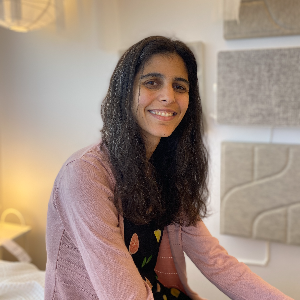
Stacie Fanelli LCSW (She/Her)
Stacie Fanelli is an AuDHD eating disorder therapist and owner of the California-based private practice Autonomous Minds. She works with clients at the intersection of EDs and neurodivergence and offers professional consultation on special considerations in supporting this population.
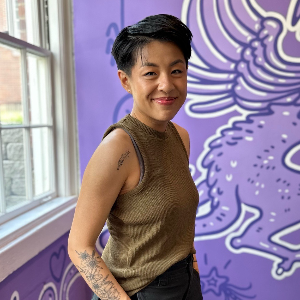
Jocelyn Lam LMFT (She/They)
Jocelyn Lam is an AuDHD, queer, second generation Chinese and Canadian immigrant. They are the owner of Bloom in Adversity, where they specialize in working with clients with eating disorders, with a similar intersection of identities. Their work derives from a strengths- and needs-based approach. Jocelyn also offers presentations, lectures, and social media content to provide education regarding working with these populations from an affirming perspective.
Depathologizing Autistic Cultural Experiences of Food and Body
If you’ve met one autistic person, you’ve met one autistic person; there is no one set of steps in a textbook that constitute “affirming care.” Yet, collectively, as neurodiversity enters the mainstream vernacular, the autistic community at large is begging allistic (non-autistic) allies to accommodate their differences rather than hold them to neuronormative expectations. In this presentation, we will share about the unique ways autistic folks engage with food, movement, and their bodies and examine both how the eating disorder field has contributed to pathologizing these presentations and how we can do better in differentiating a difference from a problem. Through both personal stories and current research, we will highlight the richness of autistic perspectives and advocate for a more inclusive understanding of the autistic relationship to food through a cultural lens. We will also explore affirming strategies for supporting autistic clients who present for eating disorder treatment.
Learning Objectives
- Participants will be able to question and modify previously learned neuronormative treatment strategies in treatment of eating disorders of autistic clients.
- Participants will be able to incorporate and de-pathologize inherent autistic traits and behaviors in eating disorder treatment of autistic clients.
- Participants will be able to apply knowledge of autistic culture and joy to transform therapist-client relationship dynamics in eating disorder treatment of autistic clients.
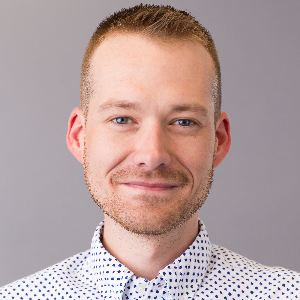
Jason Wood (He/Him)
Jason Wood turned his battle with orthorexia into a mission to break the stigma around men’s mental health by publishing his memoir Starving for Survival. He is proud to serve on the board for Running in Silence, Michigan Eating Disorder Alliance, and SoulPaws Recovery Project. Jason is also the Director of Community Engagement at ANAD and facilitates the organization’s new men’s peer support group. Through speaking engagements, his writing, and his work, Jason strives to start an important conversation that encourages everyone–especially men–to speak up, share their stories, and get the help they deserve.
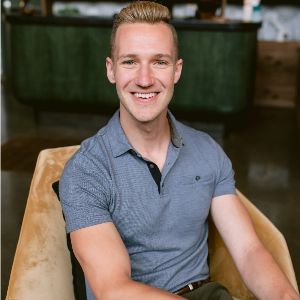
Eric Pothen (He/Him)
Eric Pothen is a certified Eating Disorder Recovery Coach and an Integrative Wellness and Life Coach. Eric struggled with an eating disorder for several years. Today, he uses these struggles as his fuel to raise awareness around and help people on their recovery journey with eating disorders, disordered eating, and body image, especially men. He also helps individuals who feel “stuck” in life move towards balance by helping them achieve life goals. Eric is the owner and founder of an apparel company, “Embrace Wear” and host of the podcast “Embracing You.” Their missions are to help others embrace themselves and discover beauty and self-worth within.
Revealing The Hidden Challenges of Eating Disorders in Men
Using a conversational podcast interview format, Jason and Eric will draw upon their lived experiences to provide a better understanding of the unique challenges men face in terms of body image, stigma, and eating disorders. This presentation will also explore the societal and community pressures Jason and Eric experience as gay men. Through discussing effective approaches to recovery, lessons in advocacy, and sharing advice for allies, this presentation will better prepare attendees to treat, care, or support the men in their lives who may also be experiencing an eating disorder.
Learning Objectives
- Participants will be able to recognize a new perspective of the lived experience with an eating disorder through the lens of a gay male.
- Participants will be able to identify effective approaches for treating, supporting, care, or even just conversing with men who may be experiencing eating or body image concerns.
- Participants be able to recognize potential red flags and warning signs in males at an earlier time in their eating disorder or mental health struggles.

Nathalia Trees MS, RD, CEDS-C (She/Her)
Nathalia Trees is a certified eating disorder Registered Dietitian and consultant specializing in the treatment of adults and adolescents with eating disorders. She was granted a Bachelor of Science from the University of Colorado and a Master of Science in clinical nutrition from Tufts University. She completed her dietetics internship at Tufts Medical Center in Boston, MA. Nathalia’s experience spans over 13 years in medical nutrition therapy, nutrition education, public speaking, and eating disorder related research. Her passion is advocacy, training, and education for current and future dietitians and helping individuals rebuild their relationship with food. Nathalia’s approach focuses on non-diet centered, weight inclusive, and compassionate care. Nathalia’s leadership style focuses on community, connection, and striving for clinical excellence in the field of eating disorders.

Rebecka Peebles MD, FAAP (She/Her)
Dr. Rebecka Peebles is the Vice President of Adolescent Medicine at Monte Nido and Affiliates. She joined there after 13 years at Children’s Hospital of Philadelphia (CHOP) and the Perelman School of Medicine at The University of Pennsylvania, where she was an Associate Professor of Pediatrics, specializing in adolescent and young adult medicine. Dr. Peebles is board certified in pediatrics and further specialty certified in adolescent and young adult medicine and served as the Director of Medical Research and Quality Innovations in the Eating Disorder Assessment and Treatment Program at CHOP, which she co-founded in 2011. Her research has been funded by the NIH and the American Heart Association, and has focused on medical evaluation, bone health, and biobehavioral links in youth with eating disorders. She graduated from Case Western Reserve University School of Medicine with her MD in 1996, completed her pediatrics residency at the Cleveland Clinic Children’s Hospital in Ohio in 1999, and her adolescent medicine fellowship at Lucile Packard Children’s Hospital at Stanford in 2003.

Katie Gustamachio MEd, RD, LDN (She/Her)
Katie Gustamachio (she/her/hers) is a registered dietitian and program director of the virtual Free to Be Intensive Outpatient Program for Binge and Emotional Eating at Monte Nido|Walden. Katie has worked at Walden since 2013, with adolescents and adults throughout all levels of care. She has passion for working with clients struggling with binge eating disorder and has helped foster and grow the Free to Be program since it shifted to a telehealth model in 2020. Katie is proud to be the first dietitian at Walden to hold a program director role. She completed her dietetic internship at Saint Louis University in 2012, and her master’s degree in health education with an eating disorder concentration at Plymouth State University in 2020.
Weight Inclusive Goal Weight Setting: How to Serve a Full Recovery Without a Side of Weight Bias
Weight restoration is an essential component of eating disorder recovery. Research and clinical work have traditionally set goal weights in accordance with either ‘ideal body weight’ calculations never intended for people with eating disorders, or a BMI of 18.5, or a median adult BMI. Given that many people with restrictive eating disorders never reach BMIs this low, and even those who do never lived in such a low range before their eating disorder, this makes little sense. Clients, families, and practitioners often try only to aim for the ‘lowest healthy weight’, failing to understand that many adverse cardiometabolic outcomes correlated with higher weight states are also correlated with weight suppression, weight cycling, and maladaptive weight control behaviors. This team of an physician and a registered dietitian nutritionist will review the research and evidence supporting the need for higher recovery weights for clients, and why we need not fear weight restoration for clients of any size. At the end of this presentation, participants will have a better understanding of goal weight setting through a weight inclusive lens using interactive case vignettes to support clinicians in navigating and compassionately man-aging weight stigma.
Learning Objectives
- Participants will be able to identify limitations of commonly used methods of target weight goal setting in the treatment of eating disorders.
- Participants will be able to describe the importance of weight restoration in reversing weight suppression, facilitating catch up linear growth and supporting cognitive recovery in patients with eating disorders.
- Participants will be able to challenge common fears and misconceptions about higher goal weights and review proposed methods of setting weight inclusive goal weights for clients of all ages

Rebecca Berg MS, RDN (She/Her)
Rebecca Berg, MS, RDN is a Registered Dietitian, adoptee, and self-proclaimed neuroscience nerd. Based in Los Angeles, California, she is the owner of No Strings Nutrition, a weight inclusive virtual nutrition therapy practice dedicated to the thoughtful treatment of eating disorders, disordered eating, and body image concerns. Rebecca is committed to empowering her clients to notice and refute the influence of diet culture in their lives through relational nutrition counseling. She provides compassionate, realistic support to her clients and challenges oppressive systemic forces that make being in a body challenging, helping each client understand that interaction with food, body and movement are shaped by our unique individual perspectives, sociocultural factors AND systems. Rebecca’s professional background as an eating disorder specialist and lived experience as a domestic infant adoptee has fueled her passion for supporting clinicians and all members of the adoption constellation understand this unique intersection.
Adoptees & Eating Disorders: Clinical Considerations & Lessons from Lived Experience
Adoptees are a marginalized and under-examined group. Research shows that adoptees are at higher risk for eating disorders, however an insufficient number of providers have competency in working with adoptees. With attachment trauma at the root of adoption, it makes sense that many adoptees struggle to eat. Rebecca will discuss the unique challenges and sources of oppression for adoptees, from her own lived experience as a domestic infant adoptee, while also drawing upon her ongoing work serving this population. In this presentation, participants will learn basics of treating adoptee populations, including key language and vocabulary, experiences of oppression and barriers to care. We will discuss the prevalence of mental illness and eating disorders among adoptees and recommendations of how to treat adoptees in an adoption competent and trauma informed manner. This talk will also address the unique hurdles and nuances in working with body dysmorphia/body image distress in adoptees.
Learning Objectives
- Participants will be able to describe the routine/normalized aspects of adoption that contribute to eating disorder pathology.
- Participants will be able to conceptualize adoption as a primary early life trauma and recognize microaggressions throughout the lifespan that can contribute to disordered relationships with food and body.
- Participants will be able to identify where traditional approaches in recovery may fall short and describe effective nutrition interventions to support adoptees in recovery and healing.
Schedule: Friday, May 2, 2025
Registration & Breakfast
Welcome
Keynote

Chevese Turner (She/Her)
Chevese Turner is a passionate advocate for health equity, with a career originally rooted in improving access to critical health treatments for cancer patients through federal policies. Her journey took a transformative turn when she founded the Binge Eating Disorder Association (BEDA) in 2008, inspired by her own experiences with recovery. Under her leadership, BEDA played a crucial role in advocating for the recognition of Binge Eating Disorder (BED) in the Diagnostic and Statistical Manual of Mental Disorders (DSM-5) and significantly raised awareness of the pervasive anti-fat biases that contribute to weight stigma and discrimination, which are critical factors for many individuals struggling with eating disorders.
Chevese founded the Body Equity Alliance in 2022, where she collaborates with organizations and brands to develop inclusive campaigns, policies, and environments that support individuals of all body sizes. She is a trauma-informed recovery coach, co-founding Attune, a program dedicated to helping individuals break free from diet dependency, weight cycling, and improve their relationship to food.
Additionally, Chevese is the co-founder and co-host of the yearly Weight Stigma Awareness Week and a sought-after speaker, sharing her expertise on eating disorders, weight stigma, and discrimination at national and international events. Through her work, she continues to champion the rights and needs of those affected by eating disorders and weight stigma, and advocates for a more equitable health landscape.
Progress in the Field of Eating Disorders: Is a Better Future Possible?
During times of uncertainty and limited resources, the most effective path forward is to envision what is possible. This requires creativity, community, and collaborative effort. Are we, as a field, prepared for the work it will take to chart a new course? In this keynote address, Chevese Turner will reflect on the journey we’ve taken, the challenges ahead, and the choices before us—leading to a future focused on exploring new possibilities, reducing harm, and improving treatments and access to care in the field of eating disorders.
Learning Objectives
- Participants will be able to describe the challenges facing the field.
- Participants will be able to summarize the necessary steps in the field to create change.
- Participants will be able to identify ways to work together in community to demonstrate how change can happen.
Refreshment Break
Session 1
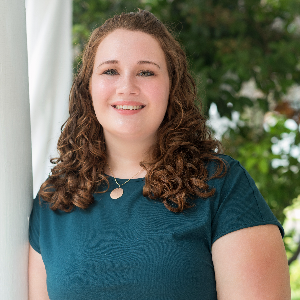
Elizabeth Hammond LICSW (She/Her)
Elizabeth Hammond is a social worker and therapist. Through polyvagal-informed therapy and acceptance and commitment therapy, she supports clients in understanding their somatic experiences, reclaiming their relationships with their bodies, and cultivating their values. With lived experience within Evangelical Christianity, as well as a specialized understanding of the intersection between eating disorders and trauma, Elizabeth has a unique perspective on survivors of Christian religious trauma and those who are in their journey of deconstruction. She is passionate about raising awareness of the mental health implications of Conservative Christianity and its impact on broader secular culture.
The Body is a Sacrifice: How Deconstructing from Purity Culture Impacts Eating Disorder Recovery
Originating within conservative and Christian groups like the Southern Baptist Convention and The Heritage Foundation in the late 1980s, contemporary purity culture quickly spread into secular life in the United States through abstinence-only sex education programs and pop culture influences like Brittany Spears, Selena Gomez, and The Jonas Brothers. More survivors of high-control religious groups are sharing their stories through social media, memoirs, and documentaries, emphasizing the internalized shame, anxiety, and disconnection they experience due to adherence to the movement. This presentation will provide the history and ideology of purity culture, emphasizing its origins in White Nationalism and racial oppression and highlighting its foundation as a political movement. This presentation will also emphasize the role of sacrificing the physical body for political ends in the ideology of purity culture, its impact on body image, bodily autonomy, and emotional disconnection, and how these factors impact eating disorders and eating disorder recovery. The presenter will also share evidence from survivor testimonials as well as personal clinical experience to offer insight into treating and supporting purity culture survivors in their eating disorder recovery.
Learning Objectives
- Participants will be able to speak to the history of purity culture in the United States, its connection to white Christian nationalism, and its impact on mental health and eating disorders.
- Participants will be able to draw connections between purity culture and a client’s relationship with their body and eating disorder behaviors.
- Participants will be able to identify three concrete skills to support clients deconstructing from purity culture in a therapeutic environment.
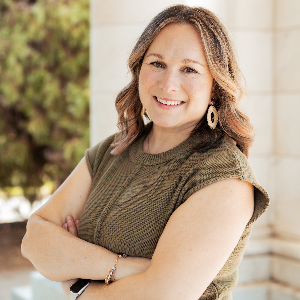
Erin Knopf MD (She/Her)
Dr. Knopf completed residency training at The University of Kentucky in a combined residency program, the Triple Board program. She previously worked at The Eating Recovery Center and ACUTE Center for Eating Disorders. She is co-founder and Chief Medical Officer of VERY, an outpatient treatment company dedicated to individualized care and grounded in weight-inclusive, trauma-informed and gender-affirming principles.

Neeru Bakshi MD (She/Her)
Dr. Bakshi is a board certified psychiatrist and has treated those with eating disorders and body image distress for the duration of her career, starting in her residency training at Baylor College of Medicine and the University of Washington, and extending through her roles in various mental health and eating disorder treatment spaces. She has spoken nationally about topics related to eating disorders at conferences, in the media, and at medical schools training future physicians.
From Weight-Centered Care to Whole-Body Health: Unpacking the History, Harm, and Future of Medical Training
This presentation explores the historical foundations of weight-focused medicine and its impact on modern healthcare practices. It delves into how medical training has prioritized weight as a primary indicator of health, often leading to biased treatments and negative patient outcomes. By examining the flaws in this approach, we will highlight the social, scientific, and ethical issues it creates. The presentation will conclude by offering strategies for shifting towards a more holistic, weight-inclusive model of care that promotes overall well-being.
Learning Objectives
- Participants will be able to identify key moments in medical history that shaped the weight-centered approach in healthcare.
- Participants will be able to evaluate how weight-focused practices contribute to stigma, misdiagnosis, and inequitable care.
- Participants will be able to identify practical tools and frameworks to shift toward holistic, patient-centered healthcare models

Ronnie Lee PsyD (He/Him)
Ronnie Lee (he/him) is a Licensed Psychologist in the state of Texas who recently completed his post-doctoral Fellowship at Baylor College of Medicine/Ben Taub General Hospital (Houston, TX) and received a doctoral degree (Clinical Psychology) from Albizu University. His prior clinical experiences have consisted of Jackson Memorial/University of Miami Hospital, Regional Memorial Neuroscience Institute, and Clementine-Miami. The majority of Ronnie’s training has taken place within a medical or residential setting, with a particular emphasis on behavioral medicine, eating disorders, consultation-liaison, special immunology, and psychological assessment.
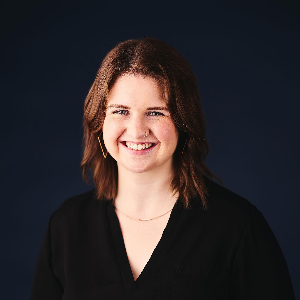
Grace Hanna MSW, RCSWI (She/Her)
Grace Ellen Hanna (she/her) is the Senior Care Coordination Manager at Within Health where she provides intensive case management services to individuals with eating disorders and their families. Grace Ellen is particularly focused on the process of recovery for people with long-term eating disorders, the transition from adolescent to adult treatment settings, and social justice and health equity frameworks. She is currently the Co-Chair of the Professionals & Recovery SIG for the Academy of Eating Disorders and a Team Lead for support group leaders at ANAD.
Remote Care, Real-Life Barriers: Considerations for Health Equity in Remote Eating Disorder Milieus
Historically, eating disorder treatment has required individuals to leave their communities for months at a time to receive specialized care. With the proliferation of telemental health services, however, eating disorder care is increasingly being delivered through electronic means and reaching a wider variety of patients. This shift has presented novel challenges and opportunities for providers as they assist patients in confronting health-related social needs. Recent literature has attempted to demonstrate the association between health equity and treatment success. This talk aims to review recent literature, highlight trends, and suggest ameliorating factors that could guide future direction and improve treatment outcomes.
Learning Objectives
- Participants will be able to identify at least 5 common barriers to eating disorder treatment in the virtual and brick-and-mortar settings, particularly for BIPOC, queer, fat, and low-SES identities.
- Participants will be able to clearly define/outline at least 3 health related social needs and identify presentations specific to the eating disorder population.
- Participants will be able to define ameliorating factors and future directions for increasing health equity in eating disorder treatment.

Akiera Gilbert (She/Her)
Akiera (she/her) is a social innovator, healing justice advocate, and the CEO of Project HEAL – a nonprofit focused on equitable access to eating disorder care. Prior to Project HEAL, Akiera founded Body Reborn, an intersectional healing community for BIPOC who struggle with disordered eating.
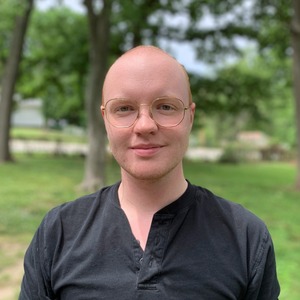
Carsen Rhys Beckwith (They/Them)
Carsen is a dedicated advocate for equity and social change, with over nine years of experience addressing health disparities in queer communities, reproductive justice, and organizational development. They are currently the Program Director at Project HEAL, where they lead a number of direct service, community care, and capacity building programs to break down barriers to eating disorder healing. They hold a BA in International Studies from American University and an MSW from Washington University, specializing in sexual health and violence prevention.
Identity-Informed Recovery: Understanding the Role of Social Identities in Treatment
This session provides a comprehensive exploration of the nuanced interplay between various social identities, such as race, gender, and sexuality, in the context of eating disorder recovery. The presentation will delve into the unique ways these intersecting identities influence an individual’s experiences with eating disorders and their journey toward recovery. Emphasis will be placed on practical strategies for attendees to recognize and effectively incorporate these diverse identities into their treatment approaches.
Learning Objectives
- Participants will be able to identify and discuss at least three key intersectional factors (e.g. race, gender, sexuality, etc.) that influence eating disorder recovery. They will explore strategies to recognize these factors in their work and evaluate how they impact client experiences.
- Participants will be able to demonstrate an increased ability to practice intersectionality with clients with majority and marginalized identities.
- Participants will engage in interactive exercises that allow them to practice additional empathetic communication skills in order to foster agency in recovery.
Lunch
Session 2
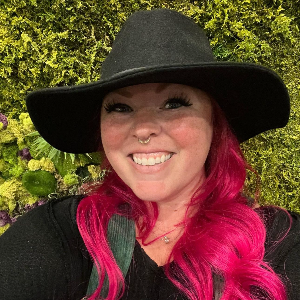
Joy Zelikovsky Psy.D., LP., MSCP., CEDS-C., M.A., M.Phil., M.S.Ed (She/Her)
Dr. Joy Zelikovsky, Psy.D., CEDS-S, MSCP, is a licensed psychologist specializing in eating disorders, bringing a wealth of clinical and academic experience to her work. She holds multiple advanced degrees, including a Doctor of Psychology from the Florida School of Professional Psychology and a Postdoctoral Master of Science in Clinical Psychopharmacology from Alliant International University. Currently, she serves as an assistant professor at Southern Connecticut State University. As the owner of Nourish The Heart Counseling, she provides individual and group therapy, supervises clinicians, and oversees the practice’s operations. Dr. Zelikovsky is also a Certified Eating Disorder Specialist and Consultant, reflecting her deep commitment to excellence in mental health care.
Harm Reduction in Eating Disorder Therapy: Navigating Ethical Challenges
Harm reduction is a pragmatic and compassionate approach that aims to minimize the negative consequences associated with eating disorders, rather than focusing solely on the elimination of disordered behaviors. This workshop will explore the principles and practices of harm reduction in the context of eating disorder therapy, emphasizing the ethical challenges that clinicians may encounter. Participants will gain practical tools and strategies for implementing harm reduction in their practice while maintaining ethical integrity.
Learning Objectives
- Participants will be able to communicate the principles and theoretical foundations of harm reduction in the treatment of eating disorders.
- Participants will be able to identify common ethical challenges associated with harm reduction approaches in therapy.
- Participants will be able to demonstrate skills in ethical decision-making when applying harm reduction techniques.
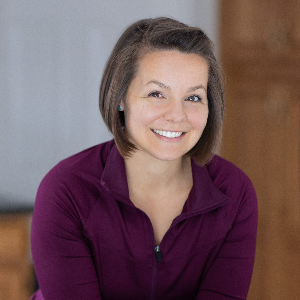
Rebecca Toutant MA, RD, CSSD, LDN, CEDS, CDCES, cPT (She/Her)
Rebecca is the owner / operator of Nourishing Bits and Bites, LLC and partners with Birch Hill Behavioral Health to provide weight inclusive nutrition services.
Nourishing Bits and Bites, LLC helps adolescents and adults develop the knowledge, skills, and confidence to eat and move in a way that support performance AND physical / mental health.

Annie Schwartz MS RDN LDN (She/Her)
Annie Schwartz, MS, RDN, LDN (she/her), is a Registered Dietitian and size-inclusivity consultant dedicated to creating systemic change in healthcare. She supports individuals of all sizes in healing their relationship with food through personalized nutrition counseling, focusing on eating disorders, disordered eating, intuitive eating, and size-inclusive strategies for managing gastrointestinal and metabolic health concerns. In addition to her clinical work, Annie collaborates with organizations to reduce harm, address weight stigma, and foster inclusive, patient-centered care approaches and environments.
Supporting Folks that are Navigating Eating Disorders and Insulin Resistance / Type 2 Diabetes
Insulin resistance and type 2 diabetes are complex conditions that often come with weight and diet centric recommendations that increase the distress folks feel around their body and food. This presentation is designed to help providers feel more confident in understanding the role of food / movement in managing the condition that do not position “weight” as the focus point.
Learning Objectives
- Participants will be able to identify 3 of the factors that increase the risk of insulin resistance.
- Participants will be able to identify 3 weight neutral ways folks can manage blood glucose / insulin resistance.
- Participants will be able to identify 3 ways weight centric care make blood glucose management more challenging.

Rebecca Powell LICSW (She/Her)
Rebecca Powell, LICSW is a psychotherapist in private practice in Arlington, MA. She holds a Master of Social Work from Simmons University. Rebecca is trained in both EMDR and IFS, using these modalities in both independent and integrative ways. Rebecca’s clinical practice specializes in the treatment of trauma, complex trauma, and eating disorders from a deeply relational, roots-up lens. The Internal Family Systems (IFS) model and community have had a profound impact on Rebecca’s personal and professional journeys, and actively shape the direction of her greater career goals within the integration of IFS and eating disorder treatment.
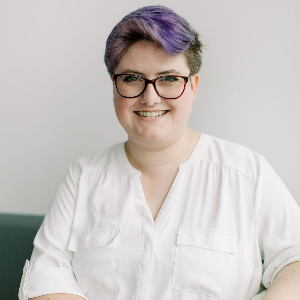
Alexis Burger-Heist MSW, RSW (She/Her)
Alexis Burger-Heist is an Associate Therapist at The Cove Therapy. She holds a Master of Social Work from University of New England. Alexis completed her Internal Family Systems (IFS) level one training in 2023 which resonated so deeply it changed the trajectory of her career. She currently serves as an IFS Program Assistant, helping to train new clinicians in this modality. Alexis has a special interest in working with eating disorders and experiences of trauma. In her free time, she enjoys hiking with her dog and crocheting.
Reconceptualizing Disorder: Examining an Internal Family Systems (IFS) Approach to Eating Disorders from the Convergence of Clinical and Lived Experience.
In this presentation, we will provide an introduction to the Internal Family Systems (IFS) Model and its intersection with eating disorders. This presentation will provide an overview of the foundation of the IFS model and the concept of Self-led clinical engagement. We will outline common approaches to care within traditional eating disorder treatment models and suggest alternative approaches via an IFS lens informed by both clinical and lived experience perspectives. In this presentation participants will have the opportunity to learn experientially to deepen understanding of how to identify and work with protective parts for both themselves and their clients.
Learning Objectives
- Participants will be able to identify and explore the foundational concepts of the Internal Family Systems (IFS) Model.
- Participants will be able to conceptualize common approaches to care within traditional eating disorder treatment models and identify alternative clinical approaches to eating disorder care utilizing the Internal Family Systems Model.
- Participants will be able to identify and interview protective parts that present within Therapist self.
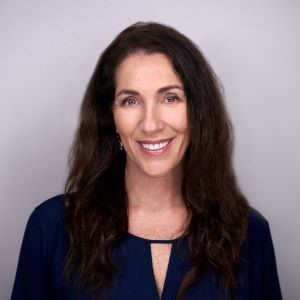
Wendy Oliver-Pyatt MD (She/Her)
Dr. Wendy Oliver-Pyatt is the co-founder, CEO, and CMO of Galen Hope and Within Health, world leading mental health and eating disorder specialty programs. Dr. Oliver-Pyatt completed her specialty training at New York University-Bellevue Hospital and has held faculty roles at NYU, Albert Einstein College of Medicine, and the University of Nevada School of Medicine. She is Board Certified by the American Board of Psychiatry and Neurology in both Adult and Addiction Psychiatry. She is also a Fellow of the Academy for Eating Disorders and the International Association of Eating Disorder Professionals. Her dedication to advancing mental health care has earned her Senatorial Recognition for her contributions to the community.

Chevese Turner (She/Her)
Chevese Turner is a passionate advocate for health equity, with a career originally rooted in improving access to critical health treatments for cancer patients through federal policies. Her journey took a transformative turn when she founded the Binge Eating Disorder Association (BEDA) in 2008, inspired by her own experiences with recovery. Under her leadership, BEDA played a crucial role in advocating for the recognition of Binge Eating Disorder (BED) in the Diagnostic and Statistical Manual of Mental Disorders (DSM-5) and significantly raised awareness of the pervasive anti-fat biases that contribute to weight stigma and discrimination, which are critical factors for many individuals struggling with eating disorders.
Chevese founded the Body Equity Alliance in 2022, where she collaborates with organizations and brands to develop inclusive campaigns, policies, and environments that support individuals of all body sizes. She is a trauma-informed recovery coach, co-founding Attune, a program dedicated to helping individuals break free from diet dependency, weight cycling, and improve their relationship to food.
Additionally, Chevese is the co-founder and co-host of the yearly Weight Stigma Awareness Week and a sought-after speaker, sharing her expertise on eating disorders, weight stigma, and discrimination at national and international events. Through her work, she continues to champion the rights and needs of those affected by eating disorders and weight stigma, and advocates for a more equitable health landscape.
The Historic and Present Danger of Intentional Weight Loss and GLP-1s
Weight management, diet culture, and weight stigma have been influential concepts throughout human history, with origins traceable as far back as Ancient Greece and an increased focus during the European and American slave trade of the 1800’s. As societal values and technologies have changed, so too have the impact of weight stigma and the increased pursuit of intentional weight loss by people of all body sizes. In this insightful presentation led by Dr. Wendy Oliver-Pyatt and Chevese Turner, attendees will delve into the historical context of intentional weight loss, diet culture, and the pervasive nature of weight stigma. The discussion will illuminate the social, cultural, and political factors that have shaped the current attitudes toward fatness as we aim to highlight the dangers associated with the global obsession with weight loss, and how weight stigma serves as a catalyst in this ongoing narrative. The discussion will include an examination of the latest methods being utilized in the pursuit of weight loss, specifically GLP-1 medications, and what this new era entails with regard to risks and the possibility for an increase in stigmatizing attitudes toward those who choose not to utilize the drugs.
Learning Objectives
- Participants will be able to associate weight stigma proliferation and the financial benefits to the weight loss industry.
- Participants will be able to demonstrate that weight stigma drives individuals to put themselves at risk when making the decision to utilize weight loss methods such as pharmaceuticals, surgeries, etc.
- Participants will be able to describe how to navigate GLP-1s with clients/patients.
Refreshment Break
Session 3
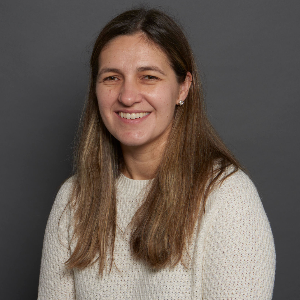
Kate Geoghegan LCPC, NCC (She/Her)
Kate Geoghegan (she/her), LCPC, NCC is an outpatient clinician at Crossroads in Scarborough, Maine, where she works primarily with clients struggling with eating disorders and substance use disorders. Kate received in her MA in Mental Health Counseling and Behavioral Medicine from Boston University in 2020. Kate worked as a group and primary therapist at Monte Nido prior to moving from Massachusetts to Maine with her family and is passionate about supporting eating disorder healing.
Carrying Vulnerability and Hope: Eating Disorders and Pregnancy
As an eating disorder clinician, it is not uncommon to hear a client state that the only time they allowed themselves to nourish their body sufficiently since the onset of their eating disorder was during pregnancy. While there is evidence supporting the notion that pregnancy may be a supportive factor in promoting decreased eating disorder symptomatology, other research demonstrates that pregnancy often intensifies eating disorder acuity, or contributes to the relapse or onset of an eating disorder. This presentation explores how eating disorder symptoms and pregnancy, from fertility and conception through the postpartum period, interact with and affect one another. It investigates how body changes and physical symptoms, like nausea or “morning sickness,” during pregnancy may disrupt clients’ sense of embodiment, identity, and control, impact body image, and contribute eating disorder behavior usage. Utilizing a Health at Every Size® framework, it illuminates how pregnant people are affected by sizeism, fatphobia, and “diet culture” narratives prevalent in both the medical establishment and the broader culture and advocates for inclusive interventions aimed at reducing shame and stigma while promoting healing.
Learning Objectives
- Participants will be able to identify 2-3 ways in which eating disorders can affect medical issues associated with pregnancy, including fertility, fetal development, and physical symptoms of “pregorexia” in the birthing parent.
- Participants will be able to identify 2-3 ways in which pregnancy may trigger intensification of eating disorder symptomatology, particularly related to how pregnancy may disrupt one’s sense of embodiment, identity, and control, and intensify concerns about weight, shape, and size.
- Participants will be able to identify 2-3 ways in which pregnant people are adversely affected by sizeism, weight stigma, and diet culture narratives in medical settings and in the broader culture.
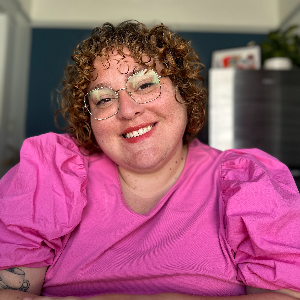
Sharon Maxwell (She/They)
Sharon Maxwell is an educator, speaker and fat activist. With compassion as a guiding principle, Sharon is a leading force in dismantling systemic anti-fat bias. She dedicates her work to eradicating weight stigma on both a social level and within healthcare settings. Drawing from her previous career in education, she combines her knowledge of curriculum development with her lived experience battling weight stigma to offer unique insights and practical tools that foster safe and accessible environments for people of size. Sharon’s story has been featured in the New York Times Magazine, on The Tamron Hall Show and numerous podcasts. Her activism work has been highlighted in news outlets including 60 Minutes, The Wall Street Journal, The Washington Post, The New York Times, NPR and more.
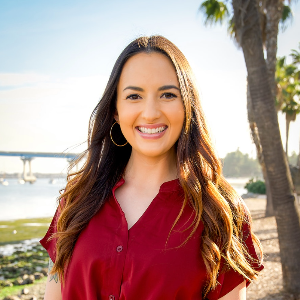
Allyson Inez Ford MA, LPCC (She/Her)
Allyson Inez Ford, MA, LPCC is an Eating Disorder and OCD therapist with lived experience. Allyson is multiracial, queer and neurodivergent, which fuels her intersectional and anti-oppression approach to food and body healing. Allyson provides virtual therapy services throughout California, runs a group private practice in San Diego and is passionate about serving her community both in and outside the therapy room. Allyson has a podcast available on Apple and Spotify called Body Justice. You can find her on Instagram @bodyjustice.therapist and her website: www.eatingdisorderocdtherapy.com
Recovering in a Broken Mental Health Care System: Hope, Tools, and Insights from Two Multiply Marginalized Survivors
This presentation offers a critical exploration of systemic issues in mental healthcare, focusing on eating disorder treatment and the compounding effects of anti-fatness and racism. Presenters Sharon and Allyson share personal stories to illustrate these challenges while guiding clinicians through practical strategies to foster hope and adaptability in their practice. The talk covers failures in the current system, creative solutions for treatment access, and approaches to build recovery-oriented care that honors clients’ diverse identities. Attendees will gain tools to redefine recovery and promote inclusivity in a system often lacking in support for marginalized clients.
Learning Objectives
- Participants will be able to point out systemic issues within the current mental healthcare landscape and their impact on eating disorder care.
- Participants will be able to explain to clients various methods to stay recovery-oriented in spite of mental healthcare system failures.
- Participants will be able to explore creative and inclusive approaches to eating disorder care that augment current gold standard interventions.

Nicole Stettler PhD (She/Her)
Nicole Stettler, PhD, is a psychologist specializing in the care of individuals with eating disorders. She is the Clinical Executive Director of Eating Disorder Recovery Services at Rogers Behavioral Health, which offers eating disorder treatment in inpatient, residential, partial hospitalization, and intensive outpatient programs. She has provided numerous trainings on evidence-based interventions for eating disorder treatment, and is particularly interested in applying emerging research findings to refine and improve those interventions in clinical practice.

Samuel Cares PhD (He/Him)
Samuel Cares, PhD, is a clinical psychologist specializing in the care of individuals with eating disorders and obsessive-compulsive disorder. He is the Supervising Psychologist of the Adult Eating Disorder Residential Center at Rogers Behavioral Health which treats individuals with eating disorders and comorbid disorders. He is especially interested in clinical care and research involving overlapping eating disorders and obsessive-compulsive disorder.
Maximizing Learning While Minimizing Harm: Inhibitory Learning and Justice-oriented Approaches to Exposure Therapy
Exposure-based therapy, a well-known treatment approach for anxiety and related disorders, has recently been applied in the treatment of eating disorders. In this presentation, we will describe the inhibitory learning model of exposure therapy as a novel and promising approach to exposure-based treatment of the full range of eating disorders. We will emphasize how to practically apply inhibitory learning principles to clients’ unique eating disorder presentations in a variety of settings. Emphasis will be placed on adopting a justice-based approach to designing exposures to fear of weight gain or fatness that do not perpetuate fatphobia or harm to marginalized groups. We will present a case and tips clinicians can use to incorporate these approaches into their own practices.
Learning Objectives
- Participants will be able to explain the inhibitory learning model of exposure-based therapy for eating disorders.
- Participants will be able to apply inhibitory learning theory to create personalized exposure plans addressing unique client presentations.
- Participants will be able to design justice-based exposures to specific fears (weight gain, fatness) that do not perpetuate fatphobia.

Shahira Orcel MS, RD, LDN, CNSC (She/Her)
Shahira Orcel is an inpatient Clinical Dietitian currently working for UMass Memorial. Her educational background includes a Master of Science in Food Science and Nutrition from Framingham State University and a bachelor’s degree in Biochemistry and Molecular Biology from Clark University. Prior to UMass, Shahira worked as an Eating Disorder Dietitian at McLean Hospital’s Klarman Eating Disorder Center in Belmont, Ma. Through her experience there, she developed a strong interest and found great reward in working with patients struggling with eating disorders. Her other passions include working to understand racial equity and its relationship to health equity and promoting weight inclusivity at the acute level of care.
Eating Disorder Challenges in Acute Care
Practices across acute care hospitals are inconsistent and highly dependent on the experience of their clinicians. Since COVID, there has been a notable and alarming increase in the number people with eating disorders at the acute level of care. This presentation will highlight the challenges and identify opportunities to align care with current evidence-based practices in order to improve patient outcomes.
Learning Objectives
- Participants will be able to communicate the current challenges in eating disorder treatment at the acute level of care.
- Participants will be able to illustrate the harms that can be caused through current clinical practice approaches at the acute care level.
- Participants will be able to identify the challenges and build on successful practices in order to improve patient outcomes and quality of care.
Refreshment Break
Session 4
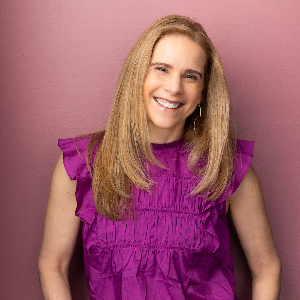
Deb Schachter LICSW (She/Her)
Deb is recognized as one of Boston’s leading clinicians in the areas of body image and eating disorder recovery. She has dedicated her 30-year career to helping people unpack their body’s story and the wisdom it has to offer. She has an IFS-informed private practice in Brookline MA where she sees individuals and runs multiple groups. She also loves supervising other clinicians and training healthcare professionals on body image and eating disorders. Deb is the co-author of Body Image Inside Out and has co-facilitated body image workshops with Whitney Otto for over 20 years.
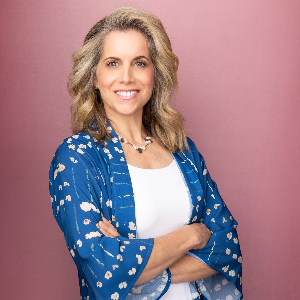
Whitney Otto MA, PCC (She/Her)
Whitney Ladd Otto, MA, PCC, is a certified coach and facilitator with over three decades of experience in leadership development, high performance, and personal transformation. As a former world champion athlete and co-host of the podcast “UNTRAINED,” Whitney is passionate about providing resources to enhance confidence, belonging, and well-being.
With degrees from Brown and Lesley University, Whitney seamlessly integrates psychological insights and evidence-based practices in working with global leaders. Whether coaching individuals, facilitating groups of C-suite executives, or offering pro-bono coaching for social justice causes, Whitney is committed to empowering individuals to live and lead with greater embodiment and connection.
Mirroring and Shapeshifting: Understanding the Unique Interplay Between Relationships and Body Image
Whitney and Deb will provide a brief overview of their unique approach to body image healing and focus in on the seminal chapter of their book, Body Image and Relationships. Long before body image was on anyone’s mind, our first mirrors were our caregivers. Whitney and Deb share their framework for helping clients explore how their early mirroring and adapting in their family of origin impacted their self-perception, their approach to their relationships and ultimately, their body image.
Learning Objectives
- Participants will be able to identify a framework for helping their clients explore how their early “mirroring” from caregivers and their relational adaptations to ensure connection can be expressed through their body perception and wishes/drives for it to be different.
- Participants will be able to formulate tools to help their clients explore how they may have unconsciously “reshaped” their needs, skills and desires to maintain connection with a family member and/or preserve their family system.
- Participants will be able to explore how often adaptive strategies become an embodied experience, impacting body image, offer new tools for how “shapeshifting” patterns likely inform adult relationships and how bodies and body image are impacted by these patterns, and acquire more language and tools to help clients respond differently when their relationships trigger a negative body image spike.
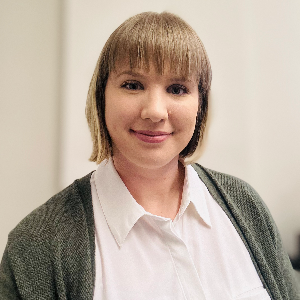
Sina King MS, NCC, RDN, LD (All Pronouns Welcome)
Sina is a multiply neurodivergent (AuDHDer, OCDer, etc.), registered dietitian, and therapist who applies a relational, social justice approach to her work. She is passionate about working to dismantle neuronormativity, and traditional, capitalism-based approaches to mental health and nutrition-related care. Sina is committed to continuing the efforts of fat and neurodivergent activists to move forward weight-inclusive, de-pathologizing, and neurodivergent-affirming care.
Performative Self-Care to Curating Radical Interconnectedness & Coping for Neurodivergent Folks
Self-care as we know it today in the mental health space often perpetuates neuronormativity, healthism, and hyper-independence, representing exclusionary practices instead of interconnectedness and community care. Providers in the mental health and eating disorder field are vulnerable to perpetuating support strategies and recommendations that can continue to pathologize clients, uphold neuronormativity, and rupture clinician/client relationships.
Presentation participants will receive practical tools and interactive space to consider the colonization of self-care and coping strategy recommendations that contribute to neuronormativity, pathologization, and anti-fat bias. Additionally, the presenter will detail differences in emotional processing, information processing, and sensory differences specific to neurodivergent clients and the impact on coping strategies, self-care, and feeding and eating.
Learning Objectives
- Participants will be able to identify how information processing differences, as well as sensory and emotion regulation differences, impact neurodivergent clients’ mental health and strategies of coping.
- Participants will be able to describe how non-traditional approaches to coping and self-care provide psychological and physical relief to neurodivergent clients experiencing feeding and eating differences.
- Participants will be able to identify four practical tools clinicians can replicate in their professional settings to support neurodivergent clients with feeding and eating differences using non-traditional, and de-pathologizing approaches.

Nicole Garber MD (She/Her)
Nicole Garber is a psychiatrist that is double board certified in general psychiatry and child and adolescent psychiatry. She is passionate about caring for patients with eating disorders. She enjoys working with complex patients that also may have co-occurring personality disorders or engage in maladaptive coping skills. She is trained in DBT, MBT, psychodynamic, and ACT which she utilizes in addition to medication management.
Pathological Exercise, Trauma, and Addiction: When Movement Takes a Dangerous Turn
Eating disorders almost never occur by themselves in regards to diagnoses and maladaptive coping skills. This presentation will focus on an often ignored symptom of an eating disorder which is pathological exercise. In addition it will focus on how trauma can be a precipitating or perpetuating factor for the eating disorder, pathological exercise, and substance. Finally there will be a discussion on creating a comprehensive treatment plan to address the eating disorder, trauma, pathological exercise and substance use utilizing nutritional rehabilitation, medication management, and psychotherapy.
Learning Objectives
- Participants will be able to identify the brain changes associated with trauma that increases an individual’s risk for developing an eating disorder, substance use disorder, and pathological exercise.
- Participants will be able to recognize the association between eating disorders, pathological exercise, substance use disorders and the increased risk of suicidal behaviors.
- Participants will be able to create a comprehensive and integrated treatment plan to treat the eating disorder, PTSD, substance use disorder, and pathological exercise utilizing nutritional, therapeutic, and medication options.
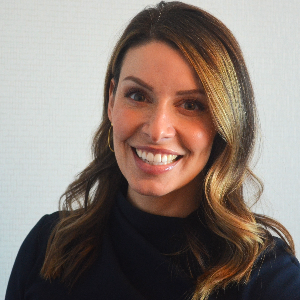
Samantha DeCaro PsyD (She/Her)
Dr. Samantha DeCaro, PsyD is the Director of Clinical Outreach & Education for The Renfrew Center, a licensed psychologist in Pennsylvania, and the co-host of the podcast All Bodies. All Foods. As Renfrew’s national spokesperson, Dr. DeCaro has been featured as an eating disorder expert on various news programs, podcasts, and magazines.
Beyond the Midnight Snack: Understanding and Treating Night Eating Syndrome
Night Eating Syndrome (NES) is listed under the diagnosis of OSFED, yet seems to be overlooked, misunderstood and misdiagnosed due to a general lack of awareness. Similar to other eating disorders, NES can have devastating effects physically and psychologically, especially when the quality and quantity of sleep is continually disrupted. Treatment must be individualized by implementing key interventions, targeting maintaining factors and expanding the interdisciplinary team. Learn how to spot the differences between Night Eating Syndrome, similar eating disorders, and sleep-related eating disorders (SREDS) and offer clients concrete tools to help them break free from the night eating cycle.
Learning Objectives
- Participants will be able to identify 3-5 differences between Night Eating Syndrome and Sleep Related Eating Disorders.
- Participants will be able to list 3-5 avoidance strategies that negatively reinforce Night Eating Syndrome symptoms.
- Participants will be able to identify 3-5 harmful effects of weight stigma in the treatment of Night Eating Syndrome.
Speakers

Adrienne Kerrigan M.Ed, PCC (She/Her)
Read Bio

Adrienne Kerrigan M.Ed, PCC (She/Her)
Adrienne Kerrigan (she/her), M.Ed, PCC, is the Site Director, Renfrew @ Home Northeast. Prior to joining The Renfrew Center she worked as a Professional Certified Coach and as an eating disorder provider in the Boston area for 16 years. Adrienne has experience working in residential settings and in private practice providing support services for clients and families in various stages of the recovery process. Adrienne has been a speaker at professional conferences regarding the advocacy for collaboration among treatment providers, eating disorder education in schools, and the effectiveness of adjunct support services within an interdisciplinary team approach to the treatment of eating disorders.
Akiera Gilbert (She/Her)
Read Bio

Akiera Gilbert (She/Her)
Akiera (she/her) is a social innovator, healing justice advocate, and the CEO of Project HEAL – a nonprofit focused on equitable access to eating disorder care. Prior to Project HEAL, Akiera founded Body Reborn, an intersectional healing community for BIPOC who struggle with disordered eating.
Alexis Burger-Heist MSW, RSW (She/Her)
Read Bio

Alexis Burger-Heist MSW, RSW (She/Her)
Alexis Burger-Heist is an Associate Therapist at The Cove Therapy. She holds a Master of Social Work from University of New England. Alexis completed her Internal Family Systems (IFS) level one training in 2023 which resonated so deeply it changed the trajectory of her career. She currently serves as an IFS Program Assistant, helping to train new clinicians in this modality. Alexis has a special interest in working with eating disorders and experiences of trauma. In her free time, she enjoys hiking with her dog and crocheting.
Alison Beckman MS, RD, LD, CEDS-C (She/Her)
Read Bio

Alison Beckman MS, RD, LD, CEDS-C (She/Her)
As Alsana’s Director of Clinical Nutrition & Movement Services, Alison Beckman is responsible for training dietitians in alignment with Alsana’s Adaptive Care Model and helping to maintain the quality and consistency of Alsana’s nutrition and movement programs. She joined Alsana as a dietitian in 2017 and has been helping clients heal their relationships with food and their bodies ever since. Ali has extensive training in the treatment of Avoidant and Restrictive Food Intake Disorder (ARFID), diabetes, and Embodied Recovery, and she is also a Certified Intuitive Eating Counselor with the credentials MS, RD, LD, CEDS-C.
Allyson Inez Ford MA, LPCC (She/Her)
Read Bio

Allyson Inez Ford MA, LPCC (She/Her)
Allyson Inez Ford, MA, LPCC is an Eating Disorder and OCD therapist with lived experience. Allyson is multiracial, queer and neurodivergent, which fuels her intersectional and anti-oppression approach to food and body healing. Allyson provides virtual therapy services throughout California, runs a group private practice in San Diego and is passionate about serving her community both in and outside the therapy room. Allyson has a podcast available on Apple and Spotify called Body Justice. You can find her on Instagram @bodyjustice.therapist and her website: www.eatingdisorderocdtherapy.com
Angela Kaloudis LMHC, PMH-C (She/Her)
Read Bio

Angela Kaloudis LMHC, PMH-C (She/Her)
Angela Kaloudis, LMHC, PMH-C maintains a private practice physically located in New York but works with individuals located in Massachusetts, Vermont, and New York. She has a passion for treating individuals with eating disorders, trauma & trauma-related disorders, and birthing individuals with Perinatal Mood and Anxiety Disorders. Angela is a Certified Perinatal Mental Health Clinician trained in Somatic Experiencing (SE) and in EMDR with advanced trainings on dissociative disorders.
Annie Goldsmith RD, LDN, AP-ERED (She/Her)
Read Bio

Annie Goldsmith RD, LDN, AP-ERED (She/Her)
Annie’s practice is rooted in a foundational belief in the inherent worthiness of all bodies. She centers weight inclusive, social justice oriented, and trauma informed frameworks in her approach to eating disorder care and recovery. Annie became interested in somatically and polyvagal-informed approaches to nutrition therapy in 2018 when she began training with the Embodied Recovery Institute, where she now provides training as part of the faculty. Annie has presented on the intersection of eating disorders and dissociation at the ISSTD World Conference, as well as the Healing Together conference. Annie is passionate about working with clients from a “bottom up” approach, centering and supporting the wisdom of the body and its innate capacity for healing.
Annie Schwartz MS RDN LDN (She/Her)
Read Bio

Annie Schwartz MS RDN LDN (She/Her)
Annie Schwartz, MS, RDN, LDN (she/her), is a Registered Dietitian and size-inclusivity consultant dedicated to creating systemic change in healthcare. She supports individuals of all sizes in healing their relationship with food through personalized nutrition counseling, focusing on eating disorders, disordered eating, intuitive eating, and size-inclusive strategies for managing gastrointestinal and metabolic health concerns. In addition to her clinical work, Annie collaborates with organizations to reduce harm, address weight stigma, and foster inclusive, patient-centered care approaches and environments.
Blake Romanini RN, MSN, MBA (He/Him)
Read Bio

Blake Romanini RN, MSN, MBA (He/Him)
Blake Romanini is the National Nursing Director at Alsana, where he leads nursing teams across multiple locations to deliver high-quality care for clients with eating disorders. With a focus on collaboration and staff development, he works to integrate nursing and direct care roles to enhance client outcomes. Blake is committed to fostering a culture of growth and accountability, navigating challenges, and guiding his teams through change while maintaining operational stability across the organization.
Carsen Rhys Beckwith (They/Them)
Read Bio

Carsen Rhys Beckwith (They/Them)
Carsen is a dedicated advocate for equity and social change, with over nine years of experience addressing health disparities in queer communities, reproductive justice, and organizational development. They are currently the Program Director at Project HEAL, where they lead a number of direct service, community care, and capacity building programs to break down barriers to eating disorder healing. They hold a BA in International Studies from American University and an MSW from Washington University, specializing in sexual health and violence prevention.
Chevese Turner (She/Her)
Read Bio

Chevese Turner (She/Her)
Chevese Turner is a passionate advocate for health equity, with a career originally rooted in improving access to critical health treatments for cancer patients through federal policies. Her journey took a transformative turn when she founded the Binge Eating Disorder Association (BEDA) in 2008, inspired by her own experiences with recovery. Under her leadership, BEDA played a crucial role in advocating for the recognition of Binge Eating Disorder (BED) in the Diagnostic and Statistical Manual of Mental Disorders (DSM-5) and significantly raised awareness of the pervasive anti-fat biases that contribute to weight stigma and discrimination, which are critical factors for many individuals struggling with eating disorders. Chevese founded the Body Equity Alliance in 2022, where she collaborates with organizations and brands to develop inclusive campaigns, policies, and environments that support individuals of all body sizes. She is a trauma-informed recovery coach, co-founding Attune, a program dedicated to helping individuals break free from diet dependency, weight cycling, and improve their relationship to food. Additionally, Chevese is the co-founder and co-host of the yearly Weight Stigma Awareness Week and a sought-after speaker, sharing her expertise on eating disorders, weight stigma, and discrimination at national and international events. Through her work, she continues to champion the rights and needs of those affected by eating disorders and weight stigma, and advocates for a more equitable health landscape.
Christine Stockert RN (She/Her)
Read Bio

Christine Stockert RN (She/Her)
Chrissy Stockert is the Chief Health Officer at Within. Chrissy’s journey in healthcare started after a career as a teacher, and she still loves to bring education into the work she does every day. After becoming a nurse in 2010, and working in various specialities, she found her passion, and has dedicated the past 12 years to specializing in the field of eating disorders. She feels honored every day to work in this field and with this population. Guiding individuals towards recovery is both her mission and privilege. Beyond her professional endeavors, she is a proud mother of two wonderful children. She loves to go to their school plays and cheer at their soccer games! When she’s not chasing around her little ones, you can probably find her baking, reading, walking, or - yes, she’s a nerd at heart - doing a crossword puzzle!
Deb Schachter LICSW (She/Her)
Read Bio

Deb Schachter LICSW (She/Her)
Deb is recognized as one of Boston’s leading clinicians in the areas of body image and eating disorder recovery. She has dedicated her 30-year career to helping people unpack their body’s story and the wisdom it has to offer. She has an IFS-informed private practice in Brookline MA where she sees individuals and runs multiple groups. She also loves supervising other clinicians and training healthcare professionals on body image and eating disorders. Deb is the co-author of Body Image Inside Out and has co-facilitated body image workshops with Whitney Otto for over 20 years.
Diana Richards RDN, LDN (She/Her)
Read Bio

Diana Richards RDN, LDN (She/Her)
Diana Dugan Richards offers an invitation to recovery to clients with disordered eating using Internal Family Systems (IFS). She is skilled and experienced in the IFS therapeutic technique, conceptual framework, and practice, and utilizes it to heal internal ruptured relationships with food and body that have been fragmented by our culture. She offers individual and group IFS consultation to nutrition professionals.
Elizabeth Hammond LICSW (She/Her)
Read Bio

Elizabeth Hammond LICSW (She/Her)
Elizabeth Hammond is a social worker and therapist. Through polyvagal-informed therapy and acceptance and commitment therapy, she supports clients in understanding their somatic experiences, reclaiming their relationships with their bodies, and cultivating their values. With lived experience within Evangelical Christianity, as well as a specialized understanding of the intersection between eating disorders and trauma, Elizabeth has a unique perspective on survivors of Christian religious trauma and those who are in their journey of deconstruction. She is passionate about raising awareness of the mental health implications of Conservative Christianity and its impact on broader secular culture.
Eric Pothen (He/Him)
Read Bio

Eric Pothen (He/Him)
Eric Pothen is a certified Eating Disorder Recovery Coach and an Integrative Wellness and Life Coach. Eric struggled with an eating disorder for several years. Today, he uses these struggles as his fuel to raise awareness around and help people on their recovery journey with eating disorders, disordered eating, and body image, especially men. He also helps individuals who feel "stuck" in life move towards balance by helping them achieve life goals. Eric is the owner and founder of an apparel company, "Embrace Wear" and host of the podcast "Embracing You." Their missions are to help others embrace themselves and discover beauty and self-worth within.
Erin Knopf MD (She/Her)
Read Bio

Erin Knopf MD (She/Her)
Dr. Knopf completed residency training at The University of Kentucky in a combined residency program, the Triple Board program. She previously worked at The Eating Recovery Center and ACUTE Center for Eating Disorders. She is co-founder and Chief Medical Officer of VERY, an outpatient treatment company dedicated to individualized care and grounded in weight-inclusive, trauma-informed and gender-affirming principles.
Grace Hanna MSW, RCSWI (She/Her)
Read Bio

Grace Hanna MSW, RCSWI (She/Her)
Grace Ellen Hanna (she/her) is the Senior Care Coordination Manager at Within Health where she provides intensive case management services to individuals with eating disorders and their families. Grace Ellen is particularly focused on the process of recovery for people with long-term eating disorders, the transition from adolescent to adult treatment settings, and social justice and health equity frameworks. She is currently the Co-Chair of the Professionals & Recovery SIG for the Academy of Eating Disorders and a Team Lead for support group leaders at ANAD.
Jason Wood (He/Him)
Read Bio

Jason Wood (He/Him)
Jason Wood turned his battle with orthorexia into a mission to break the stigma around men’s mental health by publishing his memoir Starving for Survival. He is proud to serve on the board for Running in Silence, Michigan Eating Disorder Alliance, and SoulPaws Recovery Project. Jason is also the Director of Community Engagement at ANAD and facilitates the organization’s new men’s peer support group. Through speaking engagements, his writing, and his work, Jason strives to start an important conversation that encourages everyone--especially men--to speak up, share their stories, and get the help they deserve.
Jessica Mellow (She/Her)
Read Bio

Jessica Mellow (She/Her)
Jessica Mellow (she/her) is an NYC based advocate and consultant. She is late diagnosed autistic and ADHD, and identifies as disabled. She is recovering from co-occurring ARFID and anorexia, CPTSD. Through her work as a bodypaint artist and model, she began to be more vocal about her own experience.
Jocelyn Lam LMFT (She/They)
Read Bio

Jocelyn Lam LMFT (She/They)
Jocelyn Lam is an AuDHD, queer, second generation Chinese and Canadian immigrant. They are the owner of Bloom in Adversity, where they specialize in working with clients with eating disorders, with a similar intersection of identities. Their work derives from a strengths- and needs-based approach. Jocelyn also offers presentations, lectures, and social media content to provide education regarding working with these populations from an affirming perspective.
Joy Zelikovsky Psy.D., LP., MSCP., CEDS-C., M.A., M.Phil., M.S.Ed (She/Her)
Read Bio

Joy Zelikovsky Psy.D., LP., MSCP., CEDS-C., M.A., M.Phil., M.S.Ed (She/Her)
Dr. Joy Zelikovsky, Psy.D., CEDS-S, MSCP, is a licensed psychologist specializing in eating disorders, bringing a wealth of clinical and academic experience to her work. She holds multiple advanced degrees, including a Doctor of Psychology from the Florida School of Professional Psychology and a Postdoctoral Master of Science in Clinical Psychopharmacology from Alliant International University. Currently, she serves as an assistant professor at Southern Connecticut State University. As the owner of Nourish The Heart Counseling, she provides individual and group therapy, supervises clinicians, and oversees the practice's operations. Dr. Zelikovsky is also a Certified Eating Disorder Specialist and Consultant, reflecting her deep commitment to excellence in mental health care.
Kat Rinaldi MS (She/Her)
Read Bio

Kat Rinaldi MS (She/Her)
Kat Rinaldi is a student researcher in the third year of a Clinical Psychology PhD program. She hopes to use clinical, research, and lived experience to help bridge scientist-practitioner gaps in the eating disorders field by making outcomes research more accessible to clinicians and clients. Kat is especially committed to sharing how both anti-fat bias and eating disorder fears can be addressed with the evidence-based principles of exposure therapy. She is grateful that she can ground her research and work in peer support for LGBTQ+ individuals in recovery
Kate Geoghegan LCPC, NCC (She/Her)
Read Bio

Kate Geoghegan LCPC, NCC (She/Her)
Kate Geoghegan (she/her), LCPC, NCC is an outpatient clinician at Crossroads in Scarborough, Maine, where she works primarily with clients struggling with eating disorders and substance use disorders. Kate received in her MA in Mental Health Counseling and Behavioral Medicine from Boston University in 2020. Kate worked as a group and primary therapist at Monte Nido prior to moving from Massachusetts to Maine with her family and is passionate about supporting eating disorder healing.
Katie Gustamachio MEd, RD, LDN (She/Her)
Read Bio

Katie Gustamachio MEd, RD, LDN (She/Her)
Katie Gustamachio (she/her/hers) is a registered dietitian and program director of the virtual Free to Be Intensive Outpatient Program for Binge and Emotional Eating at Monte Nido|Walden. Katie has worked at Walden since 2013, with adolescents and adults throughout all levels of care. She has passion for working with clients struggling with binge eating disorder and has helped foster and grow the Free to Be program since it shifted to a telehealth model in 2020. Katie is proud to be the first dietitian at Walden to hold a program director role. She completed her dietetic internship at Saint Louis University in 2012, and her master's degree in health education with an eating disorder concentration at Plymouth State University in 2020.
Lacey Vogel LMHC (She/Her)
Read Bio

Lacey Vogel LMHC (She/Her)
Lacey Vogel, LMHC (she/her) is an eating disorder and trauma specialist, with over a decade of experience working with individuals suffering from eating disorders. She has worked at various levels of care, including residential, PHP, and IOP. Lacey has experience as an educator and supervisor, working as a training specialist at Renfrew for the last few years before transitioning full time to her private practice.
Laura McLain PsyD, BC-TMH (She/Her)
Read Bio

Laura McLain PsyD, BC-TMH (She/Her)
Laura McLain (she/her), PsyD, BC-TMH, is the Director of Training for The Renfrew Center. Dr. McLain has a decade of experience treating eating disorders with special interest in college students, clients in midlife, co-occurring substance use, understanding and applying research to clinical practice, and managing safety concerns. In addition to her role at Renfrew, she works in private practice providing clinical supervision and serving individuals suffering with eating disorders, substance use disorders, and trauma. Dr. McLain is an active member of the American Psychological Association (APA), the International Association of Eating Disorders Professionals (iaedp), is a member of the Psychology Interjurisdictional Compact (PSYPACT), and is a Board Certified Telemental Heath Provider.
Lauren Sharifi MPH, RD, LDN (She/Her)
Read Bio

Lauren Sharifi MPH, RD, LDN (She/Her)
Lauren Sharifi is a Registered Dietitian Nutritionist with a virtual private practice specializing in Avoidant Restrictive Food Intake Disorder (ARFID). She offers both individual and group support for adults, teens, and caregivers navigating ARFID. Lauren is dedicated to expanding access to neurodivergent-affirming resources and care for those with ARFID.
Mallary Tenore Tarpley MFA (She/Her)
Read Bio

Mallary Tenore Tarpley MFA (She/Her)
Mallary Tenore Tarpley is a journalism and writing professor at the University of Texas at Austin’s Moody College of Communication and McCombs School of Business. Her writing has appeared in The New York Times, The Washington Post, Los Angeles Times, and The Dallas Morning News, among other publications. She has lived experience with anorexia and has written a book, "Slip: Life in the Middle of Eating Disorder Recovery," to be published in August 2025.
Meg Salvia PhD, RDN, CEDS-S (She/Her)
Read Bio

Meg Salvia PhD, RDN, CEDS-S (She/Her)
Meg Salvia, PhD, RDN is a Clinical Assistant Professor in the Health Sciences Department at Boston University. She has also been a dietitian for 12 years with a group private practice specializing in nutrition counseling for eating disorder recovery as well as diabetes, including co-occurring diagnoses. She completed her dietetics training and internship at Boston University and recently completed a PhD in Population Health Sciences with concentrations in Nutritional Epidemiology and Population Mental Health at Harvard University. Her current research focuses on cardiometabolic diseases, eating disorders, and eating behavior patterns in adolescents and young adults.
Molly Robbins MS (She/Her)
Read Bio

Molly Robbins MS (She/Her)
Molly Robbins is an advocate and researcher who is working towards her PhD in clinical psychology, studying the intersection of anti-fat bias and eating disorders, at Nova Southeastern University. She bridges her lived experience of both the harms of weight stigma and triumphs of recovery with her professional experience and research interests. She has worked in treatment centers at multiple levels of care for several years, running relapse prevention, arts, and body liberation groups, analyzing outcome data, and working as a yoga instructor.
Monika Ostroff LICSW, CEDS-S (She/They)
Read Bio

Monika Ostroff LICSW, CEDS-S (She/They)
Monika Ostroff, LICSW, CEDS-S is the Executive Director of the Multi-Service Eating Disorders Association, Inc (MEDA). Prior to leading MEDA, she directed several residential, partial hospital and intensive outpatient eating disorder programs in addition to having owned a thriving private practice. Monika is the co-author of Anorexia Nervosa: A Guide to Recovery and a contributing author to Self-Harm Behavior and Eating Disorders. With more than 25 years of experience in the field of eating disorders, Monika has presented at many national conferences, taught at the university level, and appeared on many media broadcasts, publications & podcasts. Practicing from a trauma informed, social justice and staunchly HAES® aligned lens, Monika is a dedicated ally and strong advocate working to ensure access to equitable, compassionate, and affirming care for all. Her passion for treating eating disorders and mentoring other professionals was borne out of her own struggle with severe and enduring anorexia nervosa and life experiences.
Nathalia Trees MS, RD, CEDS-C (She/Her)
Read Bio

Nathalia Trees MS, RD, CEDS-C (She/Her)
Nathalia Trees is a certified eating disorder Registered Dietitian and consultant specializing in the treatment of adults and adolescents with eating disorders. She was granted a Bachelor of Science from the University of Colorado and a Master of Science in clinical nutrition from Tufts University. She completed her dietetics internship at Tufts Medical Center in Boston, MA. Nathalia’s experience spans over 13 years in medical nutrition therapy, nutrition education, public speaking, and eating disorder related research. Her passion is advocacy, training, and education for current and future dietitians and helping individuals rebuild their relationship with food. Nathalia’s approach focuses on non-diet centered, weight inclusive, and compassionate care. Nathalia’s leadership style focuses on community, connection, and striving for clinical excellence in the field of eating disorders.
Neeru Bakshi MD (She/Her)
Read Bio

Neeru Bakshi MD (She/Her)
Dr. Bakshi is a board certified psychiatrist and has treated those with eating disorders and body image distress for the duration of her career, starting in her residency training at Baylor College of Medicine and the University of Washington, and extending through her roles in various mental health and eating disorder treatment spaces. She has spoken nationally about topics related to eating disorders at conferences, in the media, and at medical schools training future physicians.
Nicole Garber MD (She/Her)
Read Bio

Nicole Garber MD (She/Her)
Nicole Garber is a psychiatrist that is double board certified in general psychiatry and child and adolescent psychiatry. She is passionate about caring for patients with eating disorders. She enjoys working with complex patients that also may have co-occurring personality disorders or engage in maladaptive coping skills. She is trained in DBT, MBT, psychodynamic, and ACT which she utilizes in addition to medication management.
Nicole Stettler PhD (She/Her)
Read Bio

Nicole Stettler PhD (She/Her)
Nicole Stettler, PhD, is a psychologist specializing in the care of individuals with eating disorders. She is the Clinical Executive Director of Eating Disorder Recovery Services at Rogers Behavioral Health, which offers eating disorder treatment in inpatient, residential, partial hospitalization, and intensive outpatient programs. She has provided numerous trainings on evidence-based interventions for eating disorder treatment, and is particularly interested in applying emerging research findings to refine and improve those interventions in clinical practice.
Rachel Millner PsyD, CEDS-S, CBTP (She/Her)
Read Bio

Rachel Millner PsyD, CEDS-S, CBTP (She/Her)
Rachel Millner (she/her), Psy.D., CEDS-S, CBTP(R) is a psychologist and fat-activist in Philadelphia, PA. She utilizes a fat positive, health at every size(R) framework to support people in their healing from eating disorders, disordered eating and their relationship with food and body. Dr. Millner has appeared on many popular podcasts and publications such as Food Psych and the New York Times.
Rebecca Berg MS, RDN (She/Her)
Read Bio

Rebecca Berg MS, RDN (She/Her)
Rebecca Berg, MS, RDN is a Registered Dietitian, adoptee, and self-proclaimed neuroscience nerd. Based in Los Angeles, California, she is the owner of No Strings Nutrition, a weight inclusive virtual nutrition therapy practice dedicated to the thoughtful treatment of eating disorders, disordered eating, and body image concerns. Rebecca is committed to empowering her clients to notice and refute the influence of diet culture in their lives through relational nutrition counseling. She provides compassionate, realistic support to her clients and challenges oppressive systemic forces that make being in a body challenging, helping each client understand that interaction with food, body and movement are shaped by our unique individual perspectives, sociocultural factors AND systems. Rebecca's professional background as an eating disorder specialist and lived experience as a domestic infant adoptee has fueled her passion for supporting clinicians and all members of the adoption constellation understand this unique intersection.
Rebecca Powell LICSW (She/Her)
Read Bio

Rebecca Powell LICSW (She/Her)
Rebecca Powell, LICSW is a psychotherapist in private practice in Arlington, MA. She holds a Master of Social Work from Simmons University. Rebecca is trained in both EMDR and IFS, using these modalities in both independent and integrative ways. Rebecca’s clinical practice specializes in the treatment of trauma, complex trauma, and eating disorders from a deeply relational, roots-up lens. The Internal Family Systems (IFS) model and community have had a profound impact on Rebecca’s personal and professional journeys, and actively shape the direction of her greater career goals within the integration of IFS and eating disorder treatment.
Rebecca Toutant MA, RD, CSSD, LDN, CEDS, CDCES, cPT (She/Her)
Read Bio

Rebecca Toutant MA, RD, CSSD, LDN, CEDS, CDCES, cPT (She/Her)
Rebecca is the owner / operator of Nourishing Bits and Bites, LLC and partners with Birch Hill Behavioral Health to provide weight inclusive nutrition services. Nourishing Bits and Bites, LLC helps adolescents and adults develop the knowledge, skills, and confidence to eat and move in a way that support performance AND physical / mental health.
Rebecka Peebles MD, FAAP (She/Her)
Read Bio

Rebecka Peebles MD, FAAP (She/Her)
Dr. Rebecka Peebles is the Vice President of Adolescent Medicine at Monte Nido and Affiliates. She joined there after 13 years at Children’s Hospital of Philadelphia (CHOP) and the Perelman School of Medicine at The University of Pennsylvania, where she was an Associate Professor of Pediatrics, specializing in adolescent and young adult medicine. Dr. Peebles is board certified in pediatrics and further specialty certified in adolescent and young adult medicine and served as the Director of Medical Research and Quality Innovations in the Eating Disorder Assessment and Treatment Program at CHOP, which she co-founded in 2011. Her research has been funded by the NIH and the American Heart Association, and has focused on medical evaluation, bone health, and biobehavioral links in youth with eating disorders. She graduated from Case Western Reserve University School of Medicine with her MD in 1996, completed her pediatrics residency at the Cleveland Clinic Children's Hospital in Ohio in 1999, and her adolescent medicine fellowship at Lucile Packard Children’s Hospital at Stanford in 2003.
Robyn Kievit NP, RD, CEDS (She/Her)
Read Bio

Robyn Kievit NP, RD, CEDS (She/Her)
Robyn has been a dedicated advocate for individuals struggling with eating disorders, combining her expertise as both a dietitian and nurse practitioner focused on psychopharmacology, being the first dietitian to transition into a nurse practitioner role. Robyn began her journey in private practice in 1994, balancing full time work in several other institutions until she fully committed to her practice in 2013. A strong advocate for women’s health, Robyn emphasizes the importance of holistic care for individuals with ovaries in midlife who have faced eating disorders. She believes in the necessity of integrating appropriate hormone therapy with psychopharmacology to foster recovery and healing. Outside of her professional life, Robyn is a proud mother to children aged 12 to 24 (bio and step) and shares her life with a wonderful partner, a dog, and two cats—her cherished therapy animals.
Ronnie Lee PsyD (He/Him)
Read Bio

Ronnie Lee PsyD (He/Him)
Ronnie Lee (he/him) is a Licensed Psychologist in the state of Texas who recently completed his post-doctoral Fellowship at Baylor College of Medicine/Ben Taub General Hospital (Houston, TX) and received a doctoral degree (Clinical Psychology) from Albizu University. His prior clinical experiences have consisted of Jackson Memorial/University of Miami Hospital, Regional Memorial Neuroscience Institute, and Clementine-Miami. The majority of Ronnie's training has taken place within a medical or residential setting, with a particular emphasis on behavioral medicine, eating disorders, consultation-liaison, special immunology, and psychological assessment.
Sam Sharpe PhD (They/Them)
Read Bio

Sam Sharpe PhD (They/Them)
Sam is a transgender and intersex peer support worker, researcher, and educator. They are a team member at FEDUP Collective and a staff member with InterConnect, providing direct peer support services, social media content creation, and educational trainings on topics related to transgender and intersex health needs and experiences. Sam also has a PhD in Biology from Kansas State University where they are currently an instructor for the Department of Social Transformation Studies, and they were a 2023 ORISE Fellow with the Office of the Assistant Secretary for Health focusing on transgender and intersex health policy. They are passionate about science communication, empowering alternate approaches to care and healing, and uplifting the needs and experiences of transgender and intersex community members.
Samantha DeCaro PsyD (She/Her)
Read Bio

Samantha DeCaro PsyD (She/Her)
Dr. Samantha DeCaro, PsyD is the Director of Clinical Outreach & Education for The Renfrew Center, a licensed psychologist in Pennsylvania, and the co-host of the podcast All Bodies. All Foods. As Renfrew’s national spokesperson, Dr. DeCaro has been featured as an eating disorder expert on various news programs, podcasts, and magazines.
Samuel Cares PhD (He/Him)
Read Bio

Samuel Cares PhD (He/Him)
Samuel Cares, PhD, is a clinical psychologist specializing in the care of individuals with eating disorders and obsessive-compulsive disorder. He is the Supervising Psychologist of the Adult Eating Disorder Residential Center at Rogers Behavioral Health which treats individuals with eating disorders and comorbid disorders. He is especially interested in clinical care and research involving overlapping eating disorders and obsessive-compulsive disorder.
Sand Chang PhD (They/Them)
Read Bio

Sand Chang PhD (They/Them)
Sand Chang, PhD (they/them) is a Chinese American queer nonbinary psychologist based in California who works at the intersection of trans health, eating disorders, trauma recovery, and body liberation. They are a Trainer with the IFS Institute, a Body Trust provider, and a Somatic Experiencing Practitioner (SEP). Dr. Chang is the co-author of A Clinician's Guide to Gender Affirming Care and the upcoming workbook All Parts Welcome: The Queer and Trans Internal Family Systems Workbook. Outside of work, they enjoy spending time with their smoosh-faced dogs and competing in pun-offs.
Shahira Orcel MS, RD, LDN, CNSC (She/Her)
Read Bio

Shahira Orcel MS, RD, LDN, CNSC (She/Her)
Shahira Orcel is an inpatient Clinical Dietitian currently working for UMass Memorial. Her educational background includes a Master of Science in Food Science and Nutrition from Framingham State University and a bachelor’s degree in Biochemistry and Molecular Biology from Clark University. Prior to UMass, Shahira worked as an Eating Disorder Dietitian at McLean Hospital’s Klarman Eating Disorder Center in Belmont, Ma. Through her experience there, she developed a strong interest and found great reward in working with patients struggling with eating disorders. Her other passions include working to understand racial equity and its relationship to health equity and promoting weight inclusivity at the acute level of care.
Shannon Peters PhD (She/They)
Read Bio

Shannon Peters PhD (She/They)
Shannon Peters is a licensed psychologist and a Clinical Assistant Professor at Boston University. Their teaching is informed by feminist theory, liberation psychology, and critical psychology. Their clinical interests include LGBTQ+ mental health, transgender affirming healthcare, and emerging adulthood. Their research aims to challenge dominant assumptions that pathologize non-normative experiences and medicalize responses to oppression in order to promote inclusive physical and mental health care and foster resilient communities.
Sharon Maxwell (She/They)
Read Bio

Sharon Maxwell (She/They)
Sharon Maxwell is an educator, speaker and fat activist. With compassion as a guiding principle, Sharon is a leading force in dismantling systemic anti-fat bias. She dedicates her work to eradicating weight stigma on both a social level and within healthcare settings. Drawing from her previous career in education, she combines her knowledge of curriculum development with her lived experience battling weight stigma to offer unique insights and practical tools that foster safe and accessible environments for people of size. Sharon's story has been featured in the New York Times Magazine, on The Tamron Hall Show and numerous podcasts. Her activism work has been highlighted in news outlets including 60 Minutes, The Wall Street Journal, The Washington Post, The New York Times, NPR and more.
Sina King MS, NCC, RDN, LD (All Pronouns Welcome)
Read Bio

Sina King MS, NCC, RDN, LD (All Pronouns Welcome)
Sina is a multiply neurodivergent (AuDHDer, OCDer, etc.), registered dietitian, and therapist who applies a relational, social justice approach to her work. She is passionate about working to dismantle neuronormativity, and traditional, capitalism-based approaches to mental health and nutrition-related care. Sina is committed to continuing the efforts of fat and neurodivergent activists to move forward weight-inclusive, de-pathologizing, and neurodivergent-affirming care.
Stacie Fanelli LCSW (She/Her)
Read Bio

Stacie Fanelli LCSW (She/Her)
Stacie Fanelli is an AuDHD eating disorder therapist and owner of the California-based private practice Autonomous Minds. She works with clients at the intersection of EDs and neurodivergence and offers professional consultation on special considerations in supporting this population.
Taralyn Johnson MSN, FNP-C (She/Her)
Read Bio

Taralyn Johnson MSN, FNP-C (She/Her)
Taralyn Johnson is a family nurse practitioner with over eight years of experience treating the physical complications of eating disorders. She is the attending provider for the adult RTC unit at the Center for Change, a behavioral health hospital that specializes in eating disorders. She is passionate about keeping her patients safe, making eating disorder treatment as comfortable as possible, and educating her patients and their families about the physical consequences of eating disorder behaviors.
Wendy Oliver-Pyatt MD (She/Her)
Read Bio

Wendy Oliver-Pyatt MD (She/Her)
Dr. Wendy Oliver-Pyatt is the co-founder, CEO, and CMO of Galen Hope and Within Health, world leading mental health and eating disorder specialty programs. Dr. Oliver-Pyatt completed her specialty training at New York University-Bellevue Hospital and has held faculty roles at NYU, Albert Einstein College of Medicine, and the University of Nevada School of Medicine. She is Board Certified by the American Board of Psychiatry and Neurology in both Adult and Addiction Psychiatry. She is also a Fellow of the Academy for Eating Disorders and the International Association of Eating Disorder Professionals. Her dedication to advancing mental health care has earned her Senatorial Recognition for her contributions to the community.
Whitney Otto MA, PCC (She/Her)
Read Bio

Whitney Otto MA, PCC (She/Her)
Whitney Ladd Otto, MA, PCC, is a certified coach and facilitator with over three decades of experience in leadership development, high performance, and personal transformation. As a former world champion athlete and co-host of the podcast "UNTRAINED," Whitney is passionate about providing resources to enhance confidence, belonging, and well-being. With degrees from Brown and Lesley University, Whitney seamlessly integrates psychological insights and evidence-based practices in working with global leaders. Whether coaching individuals, facilitating groups of C-suite executives, or offering pro-bono coaching for social justice causes, Whitney is committed to empowering individuals to live and lead with greater embodiment and connection.Treatment Sponsors
Gold Sponsors
Silver Sponsors
Conference Sponsors
Community Sponsors
Compassion Sponsors
Hope Sponsors
Hope Sponsors
Inspiration Sponsors
Recovery Sponsors
Interested in Becoming a Conference Sponsor?
Contact us at conference@medainc.org with any questions.
We hope to see you on May 1st and 2nd!!
